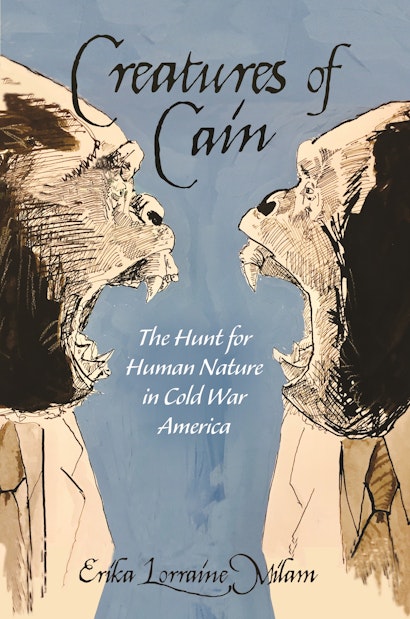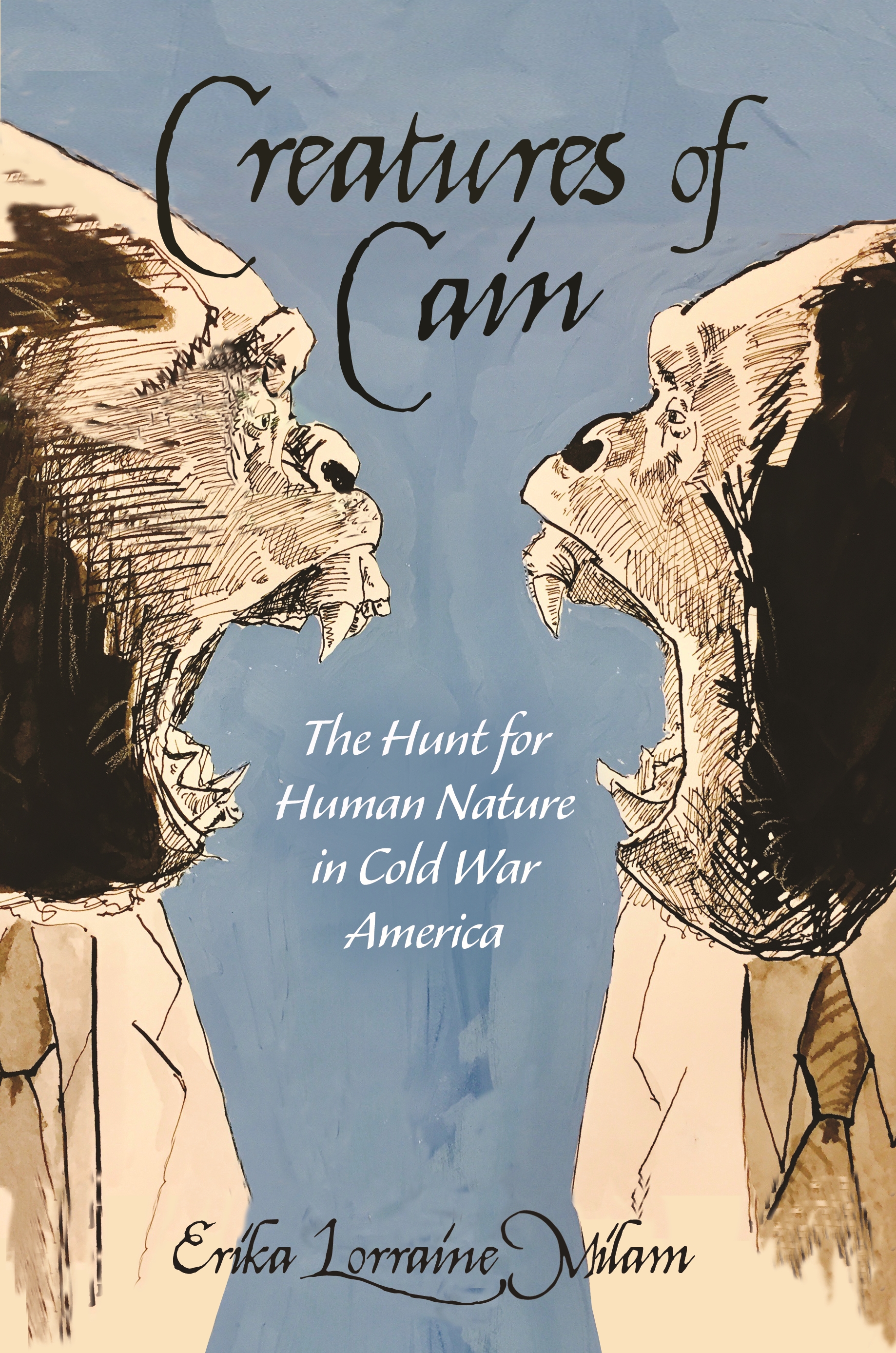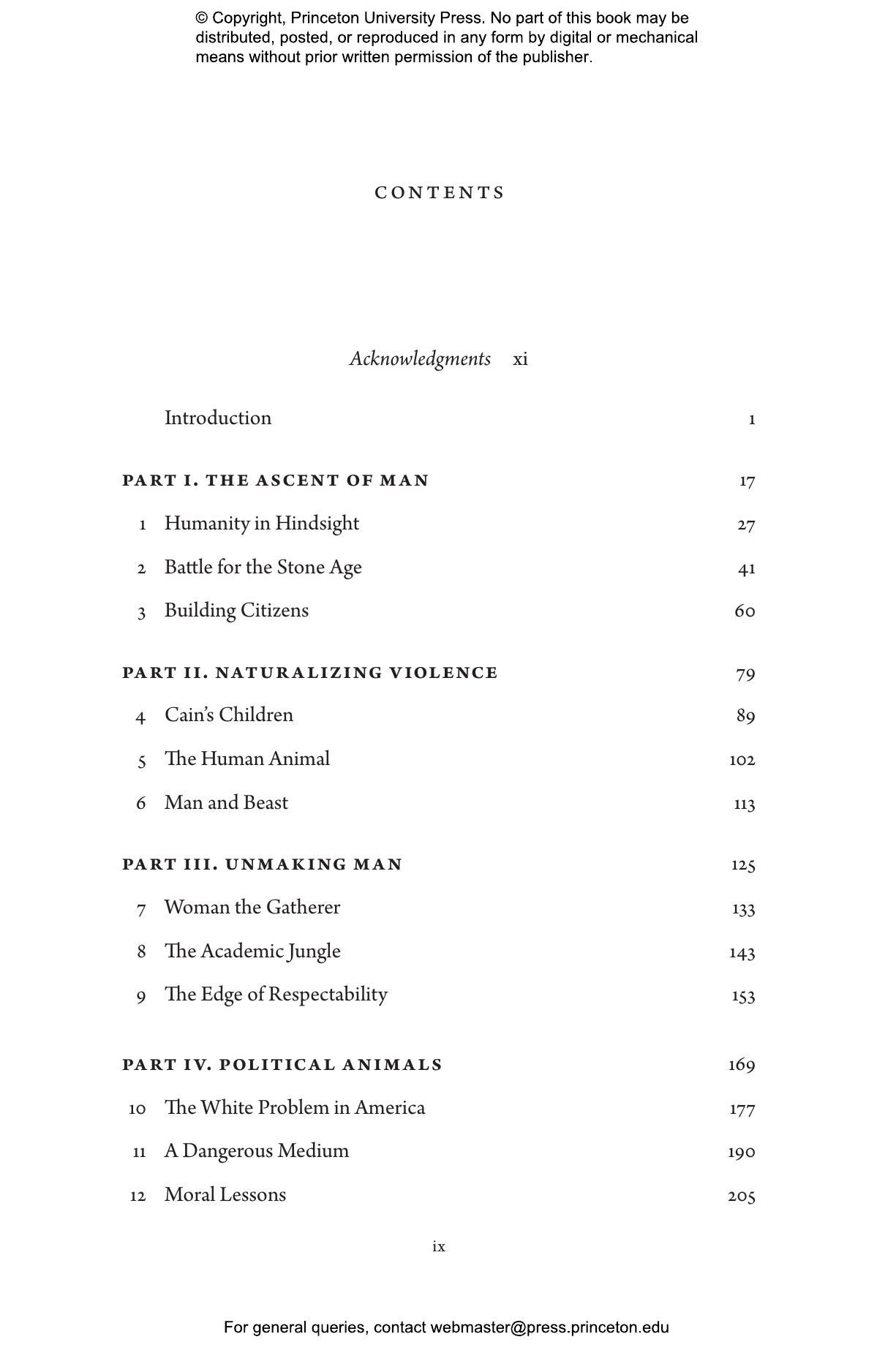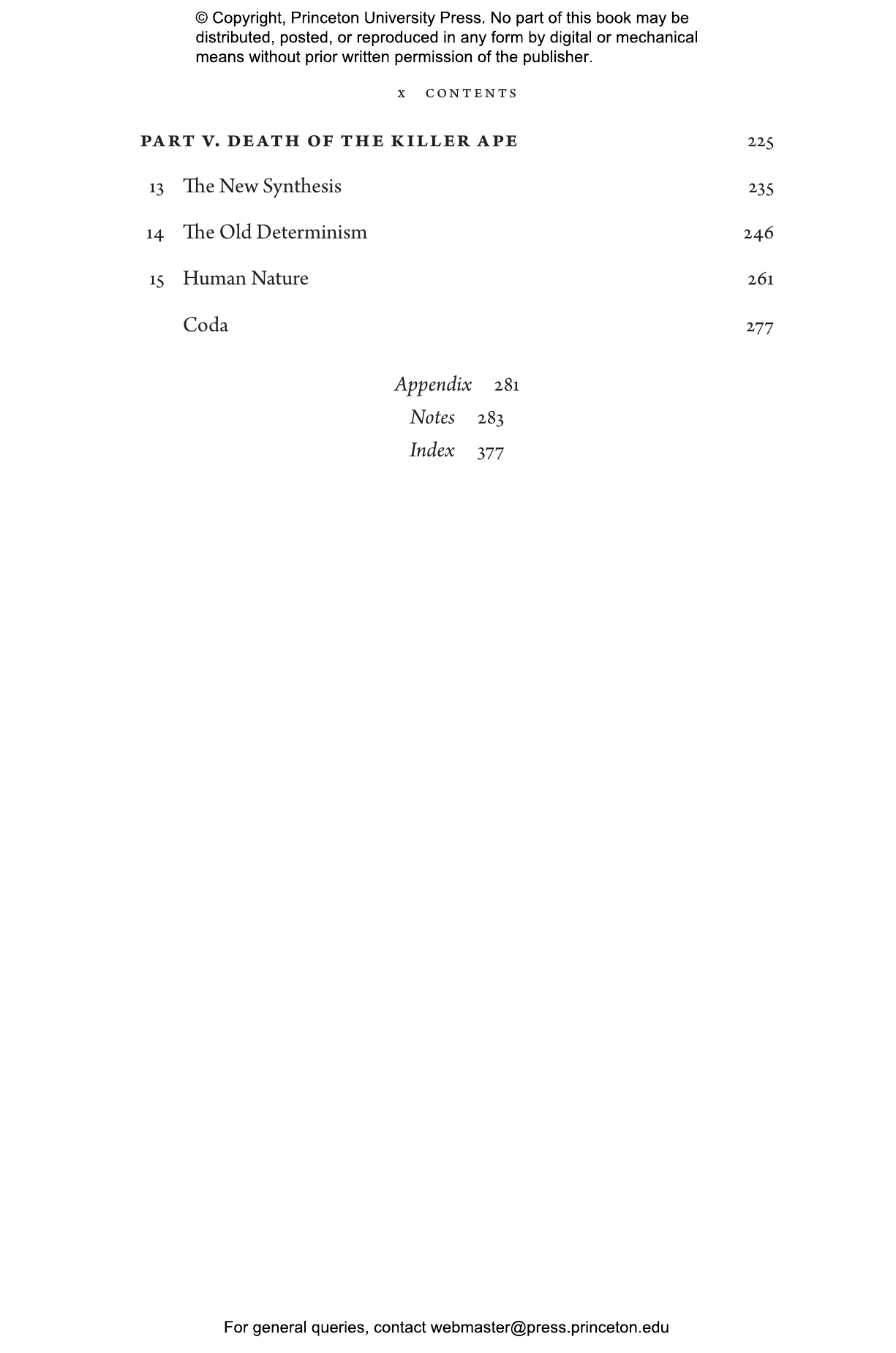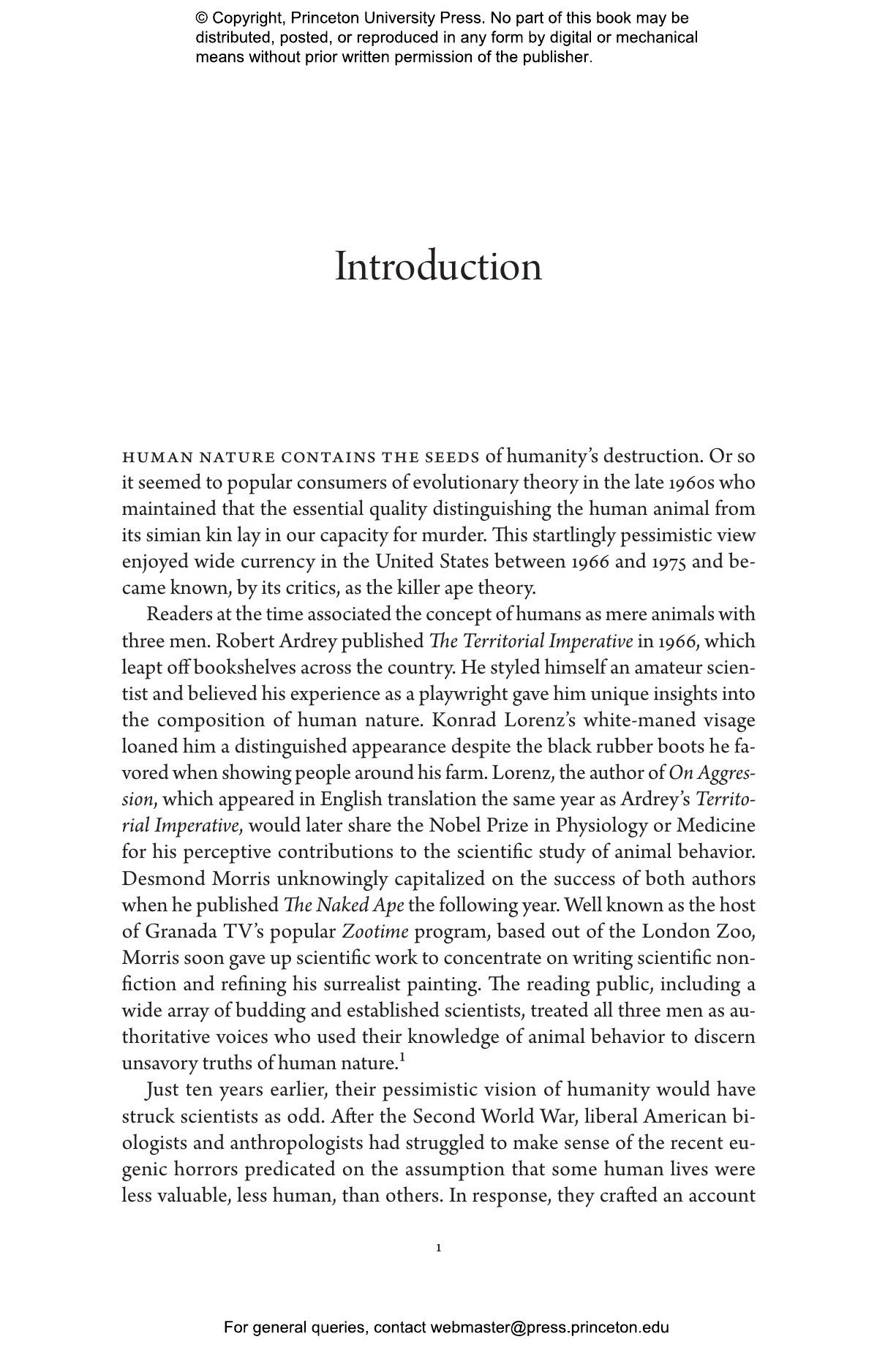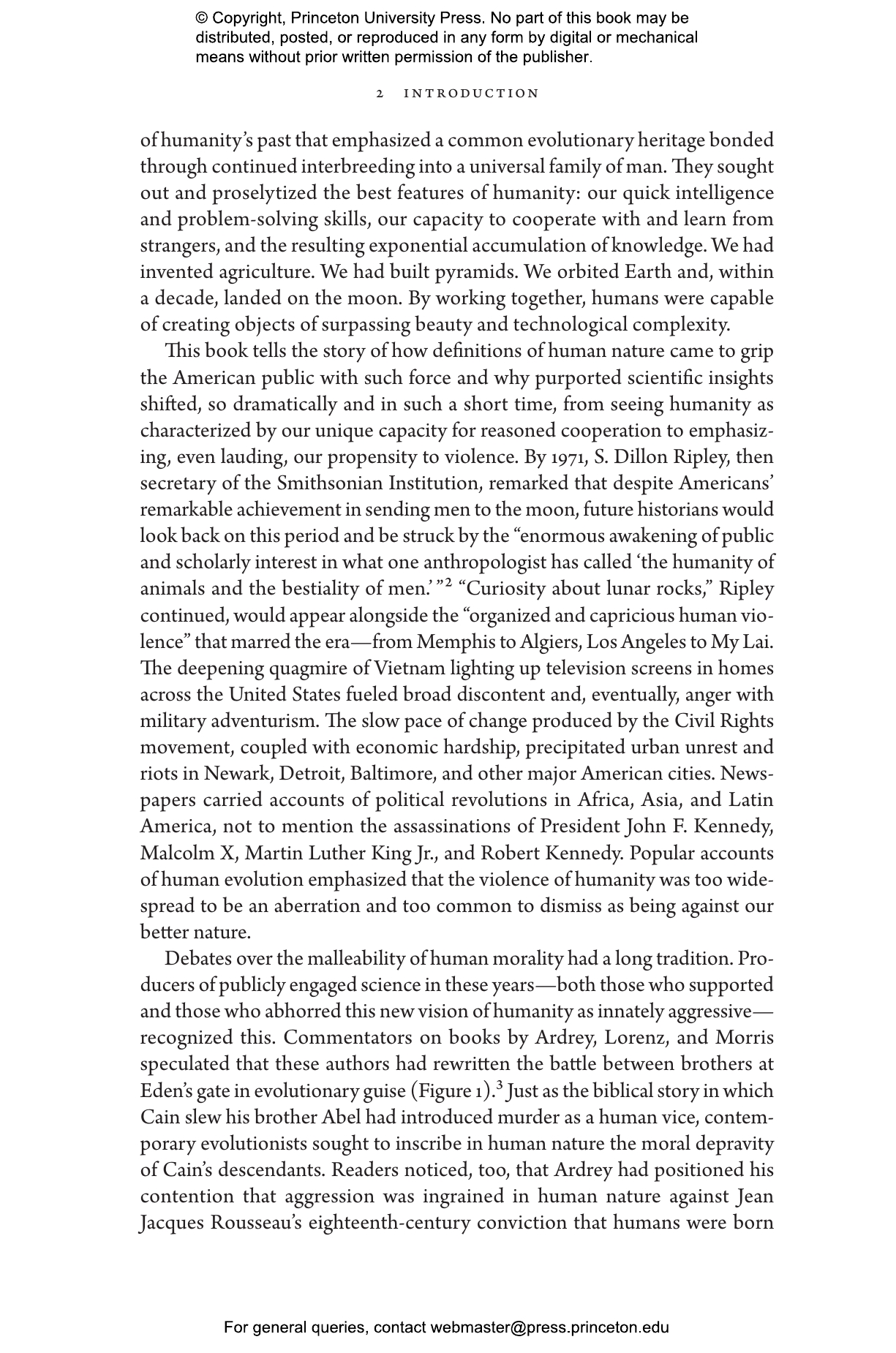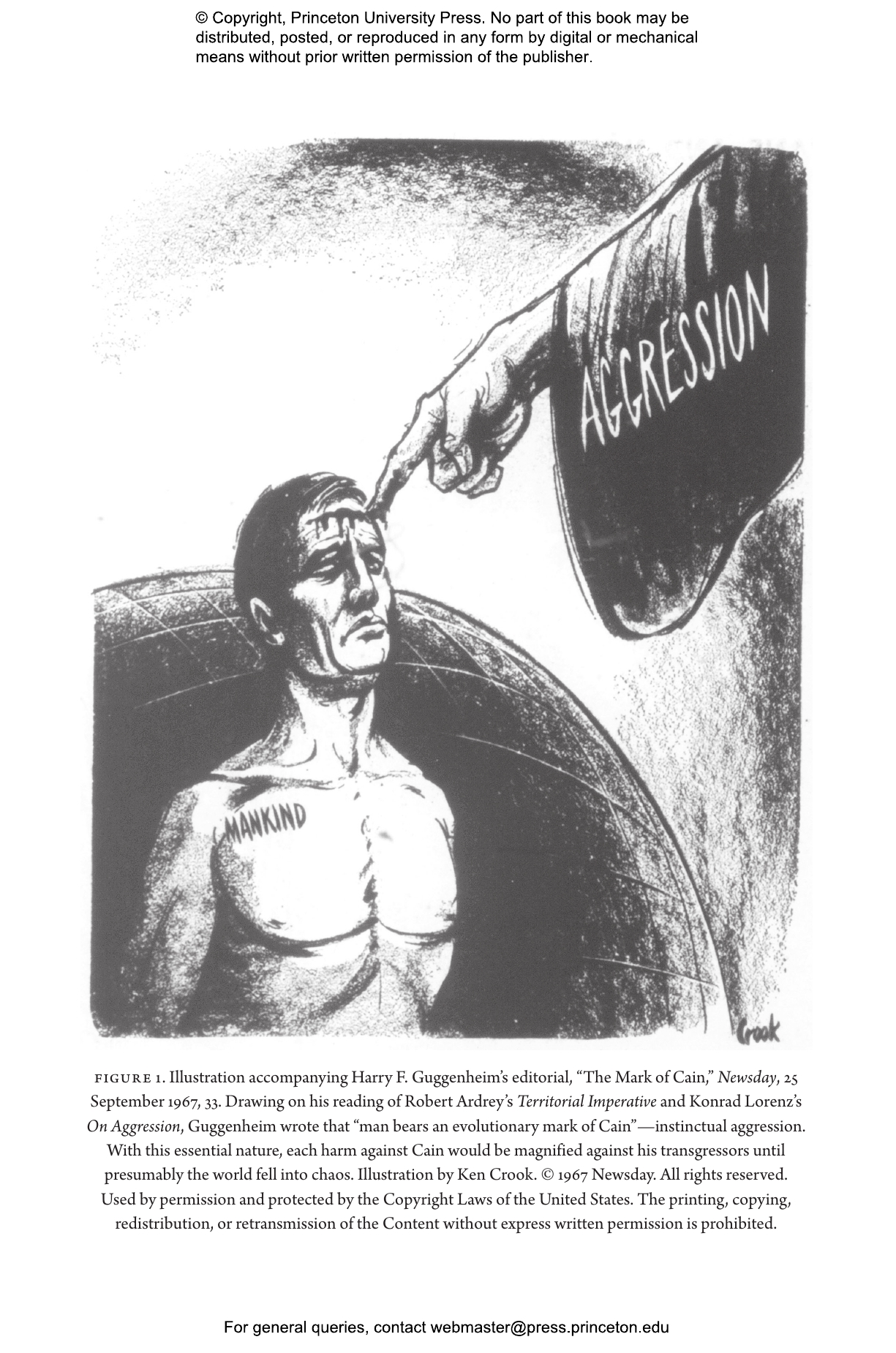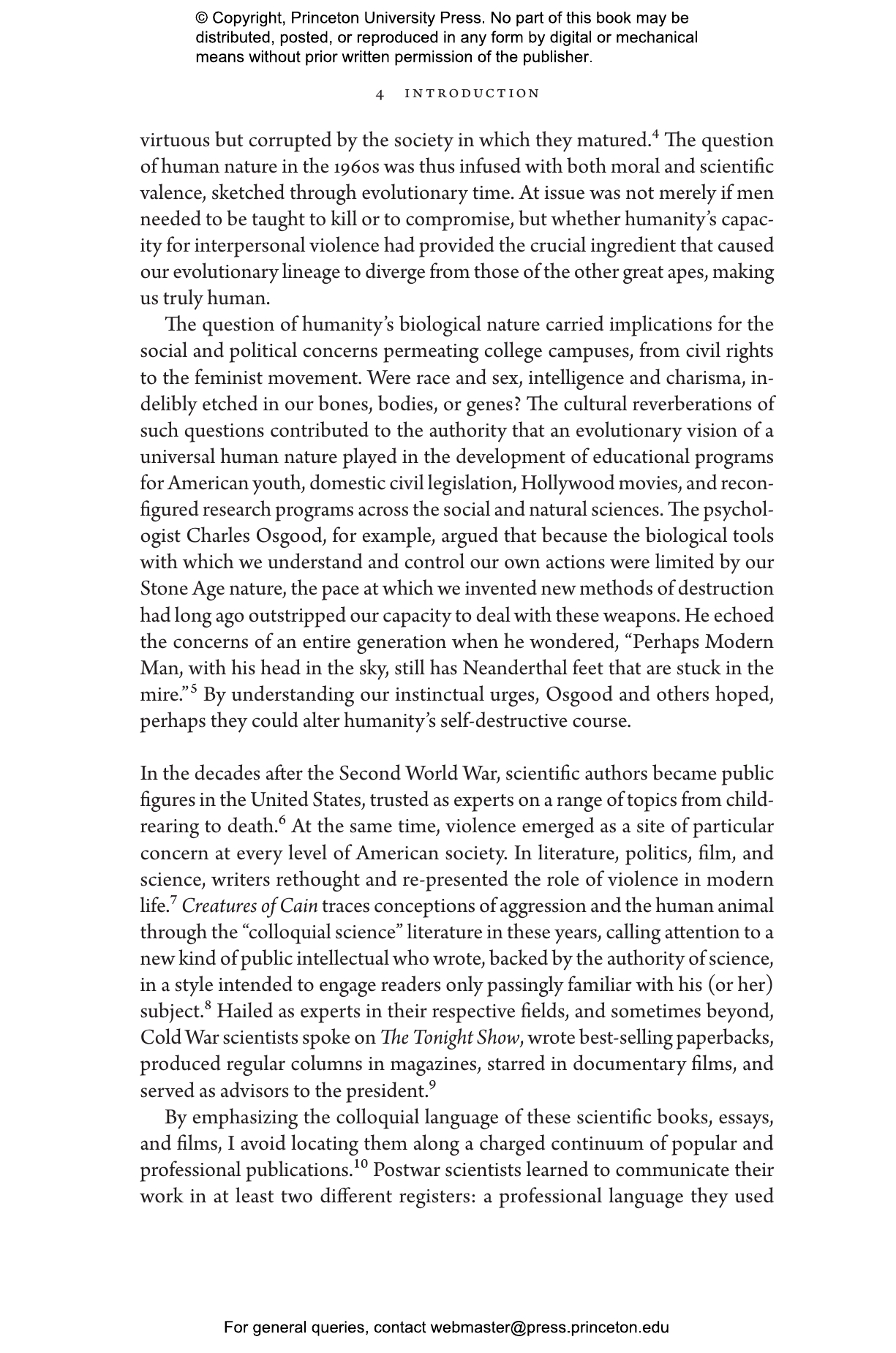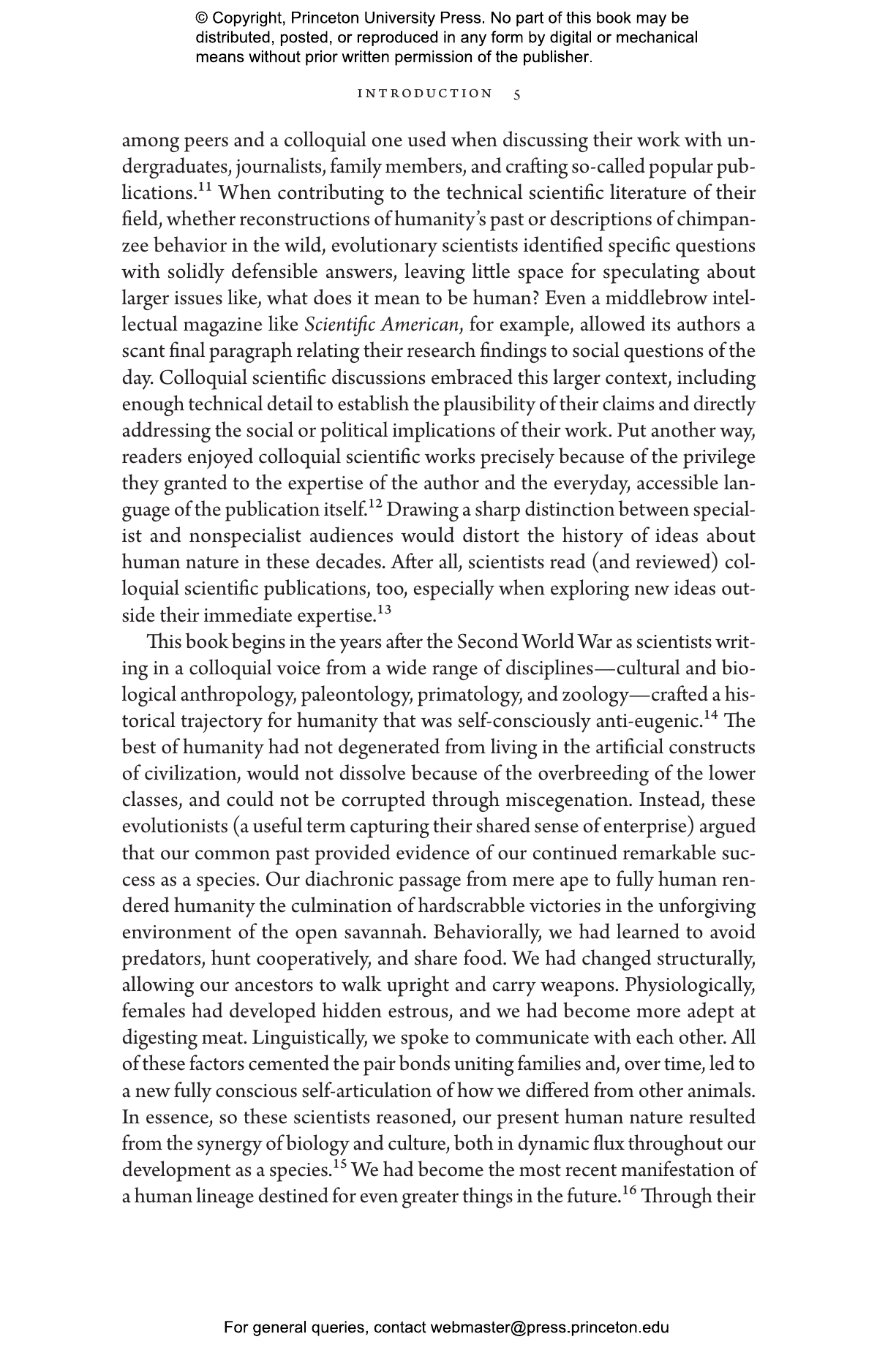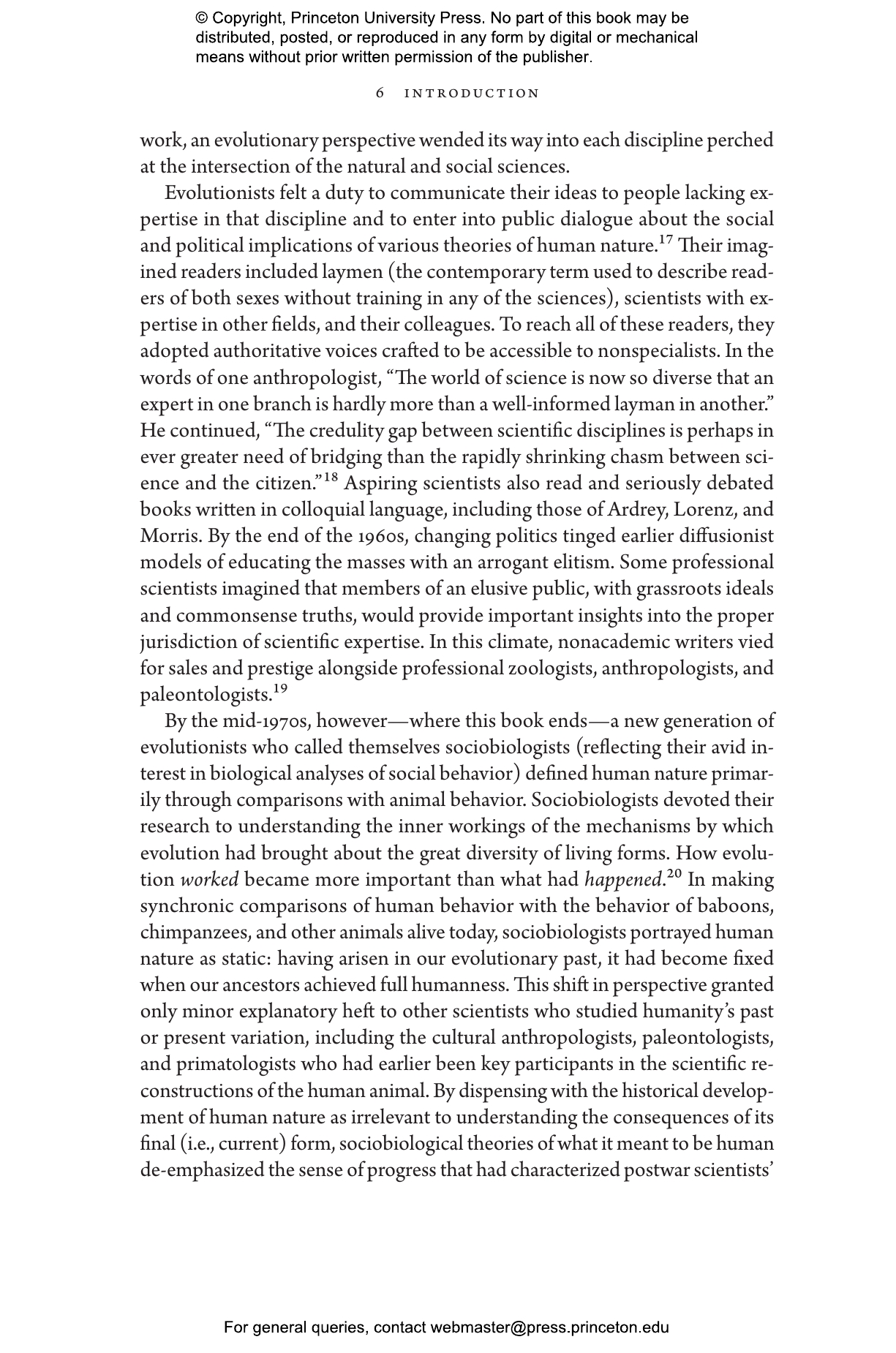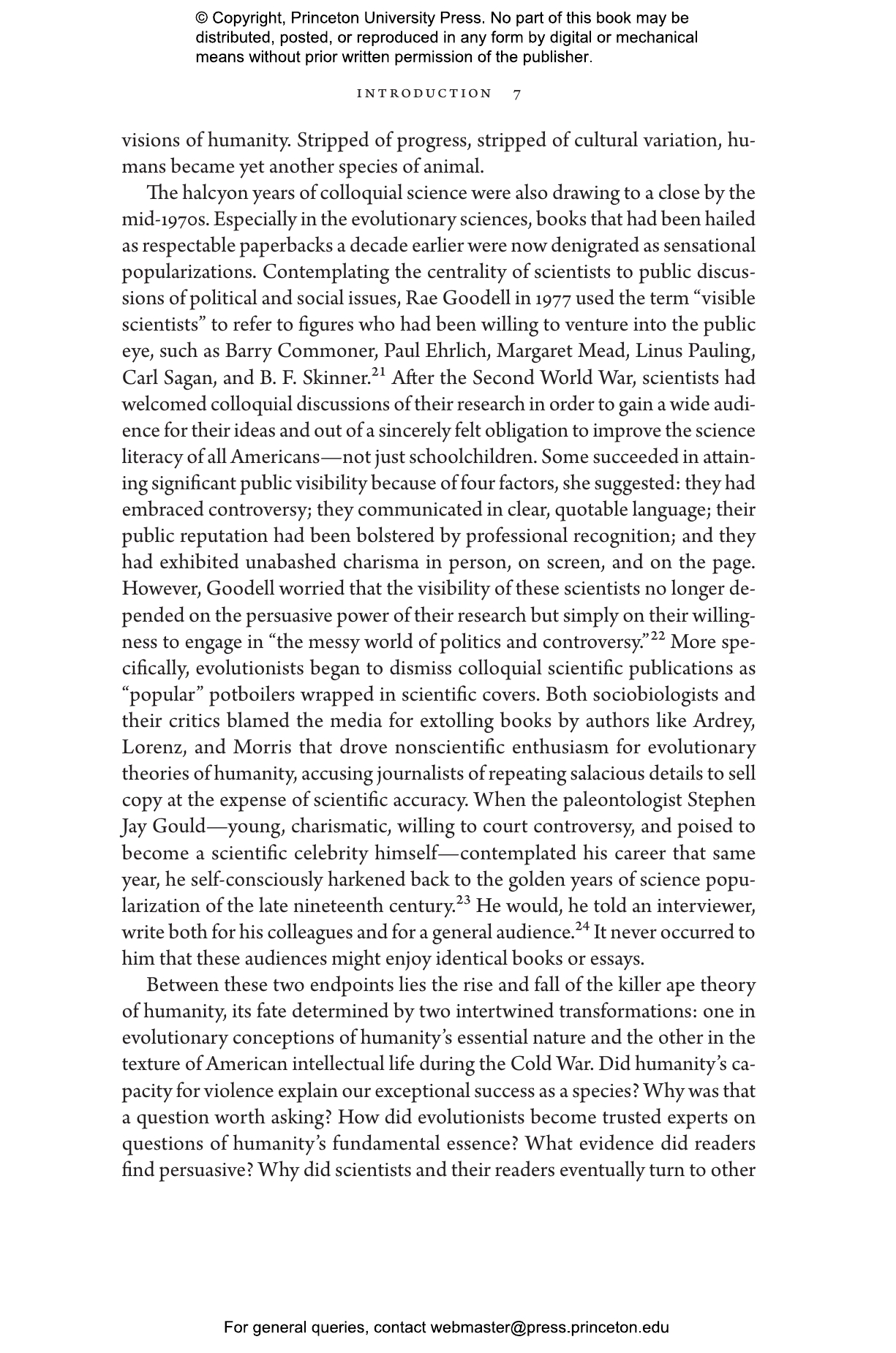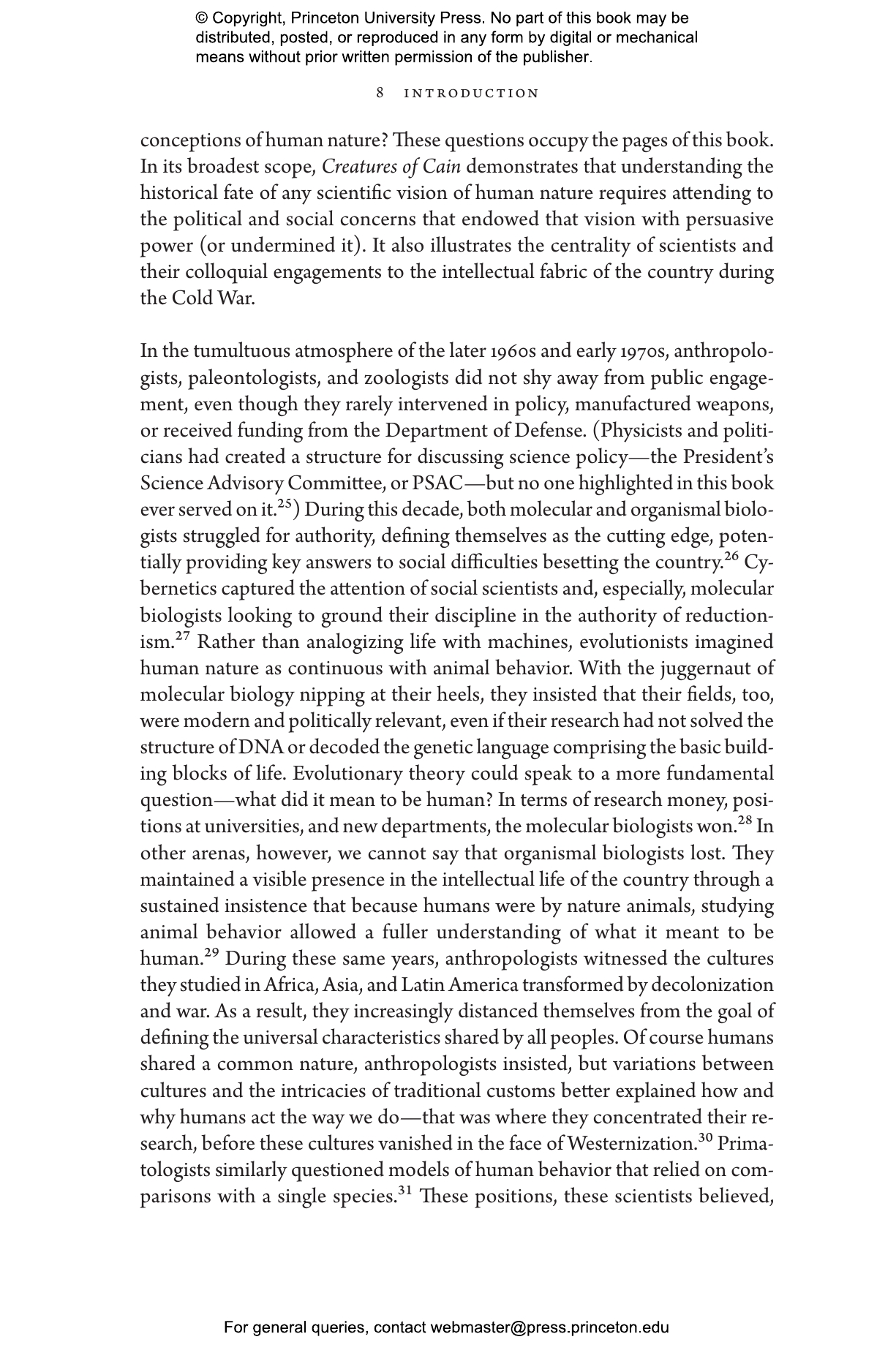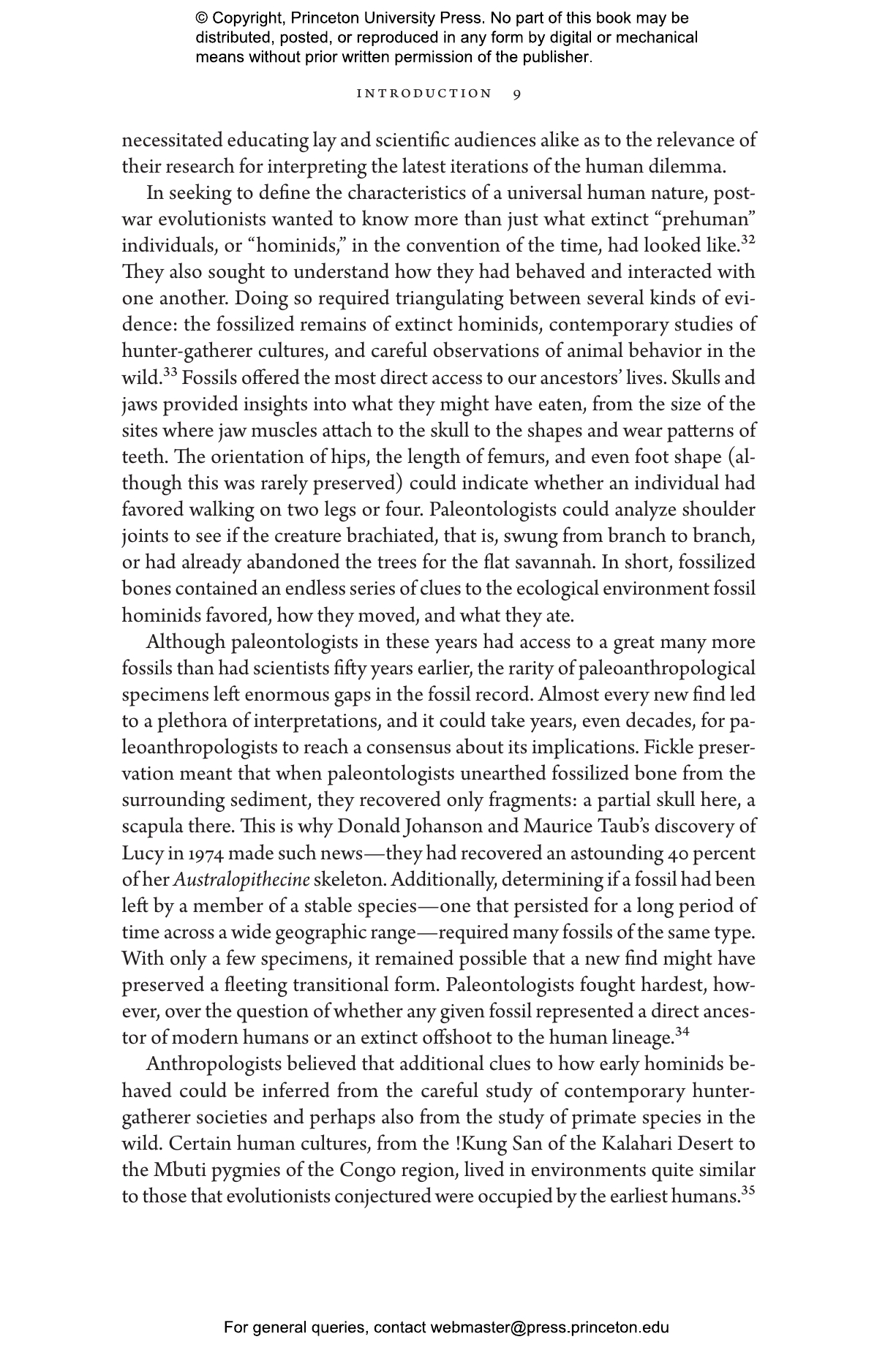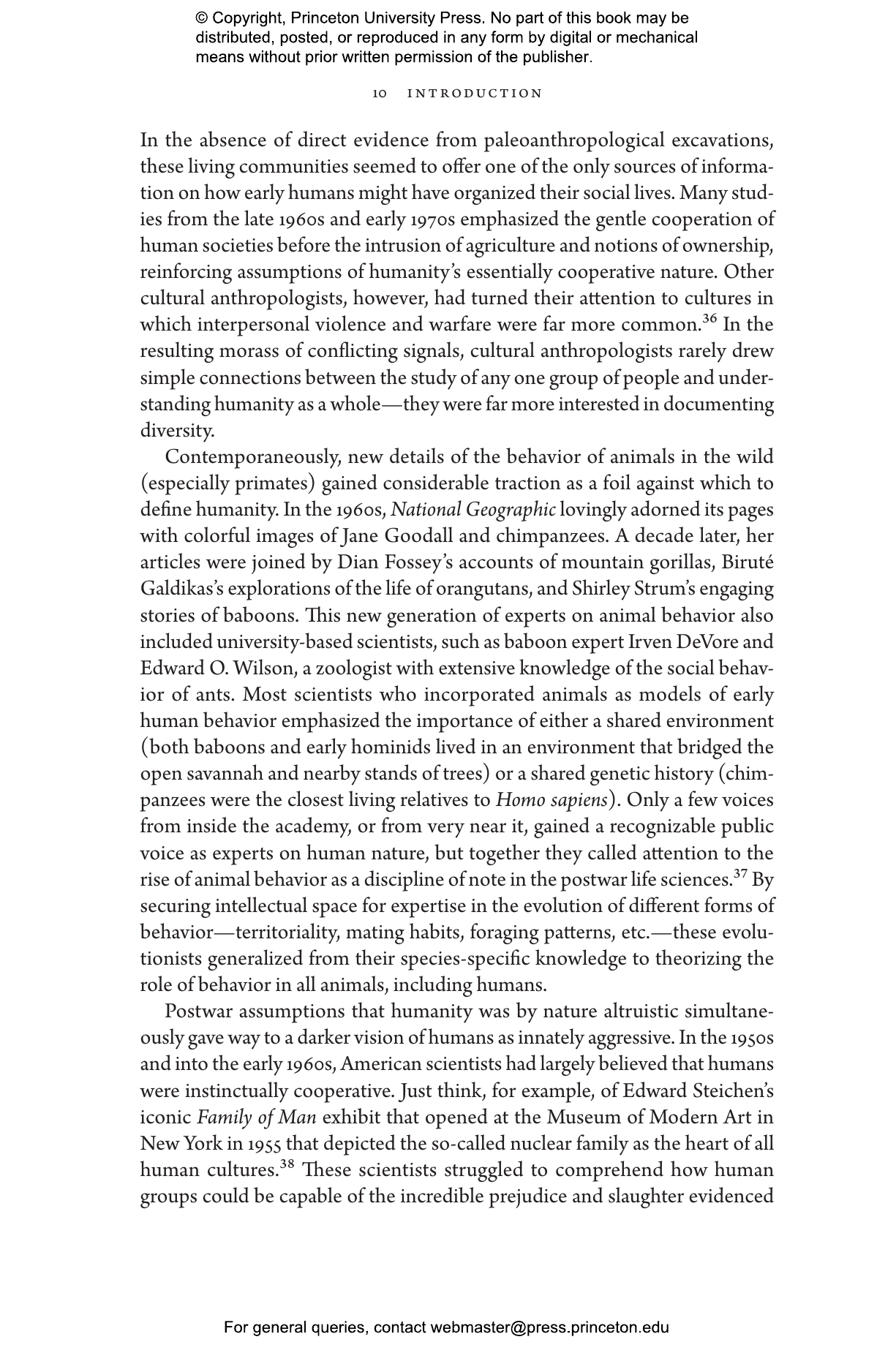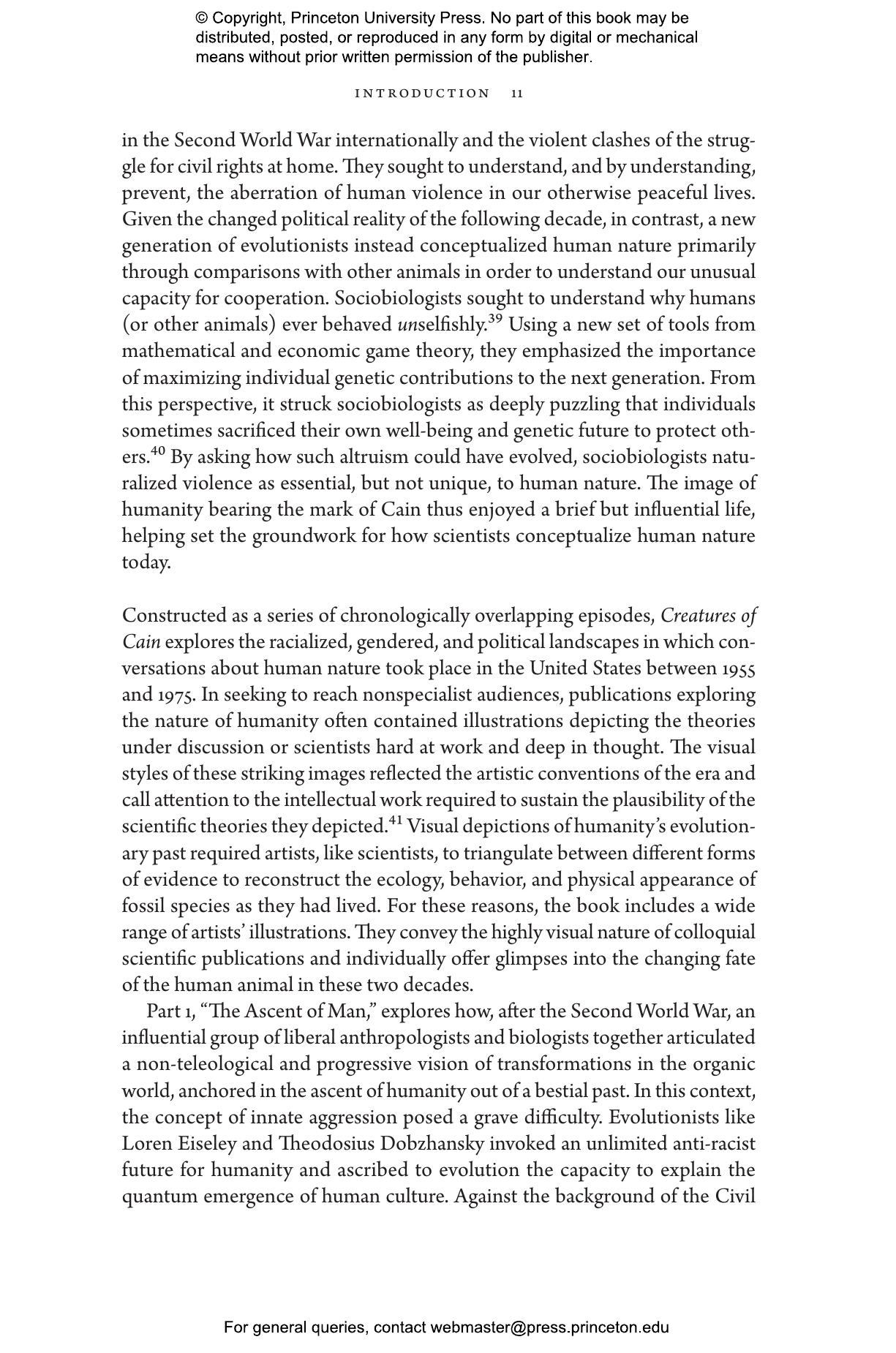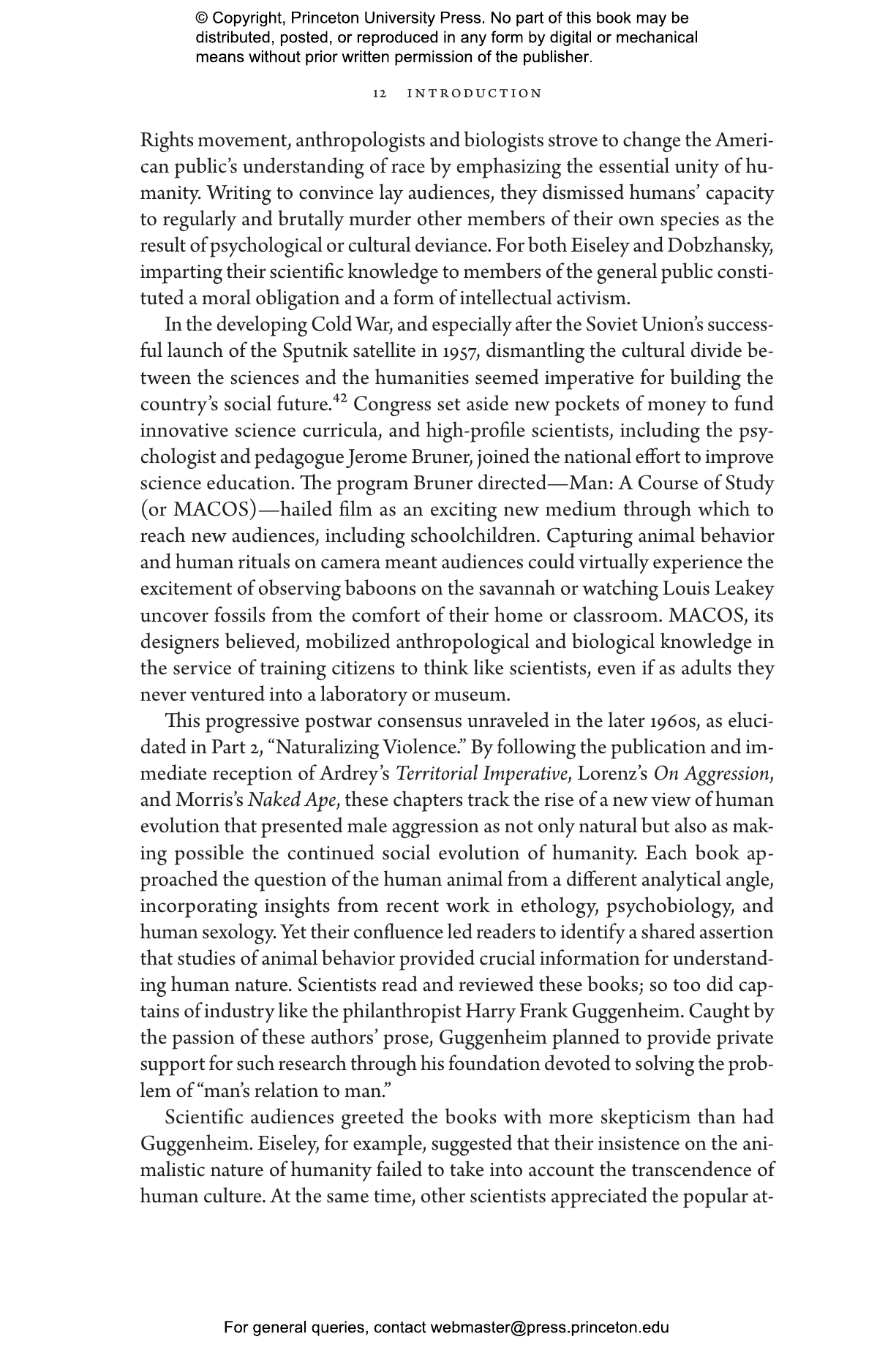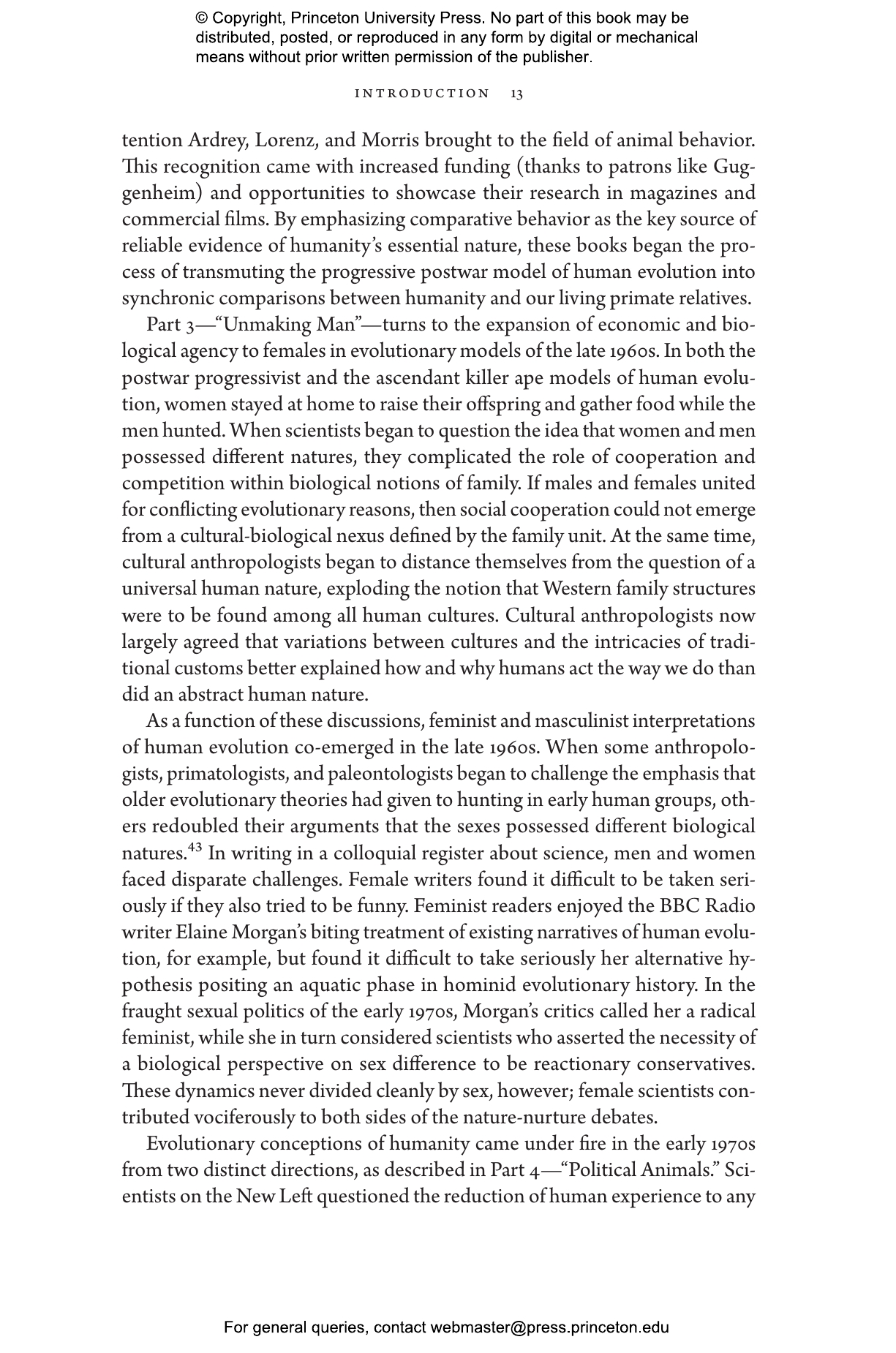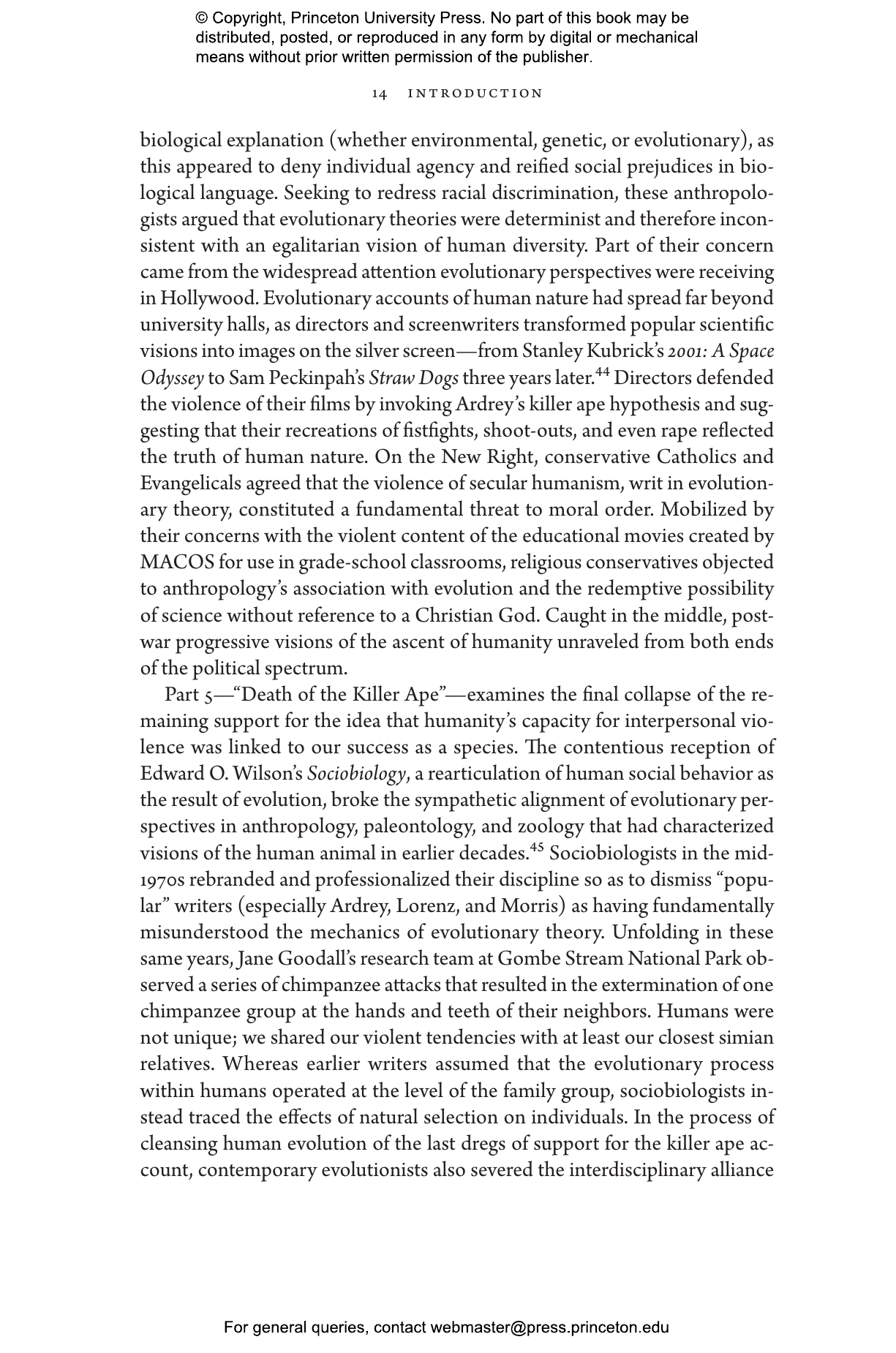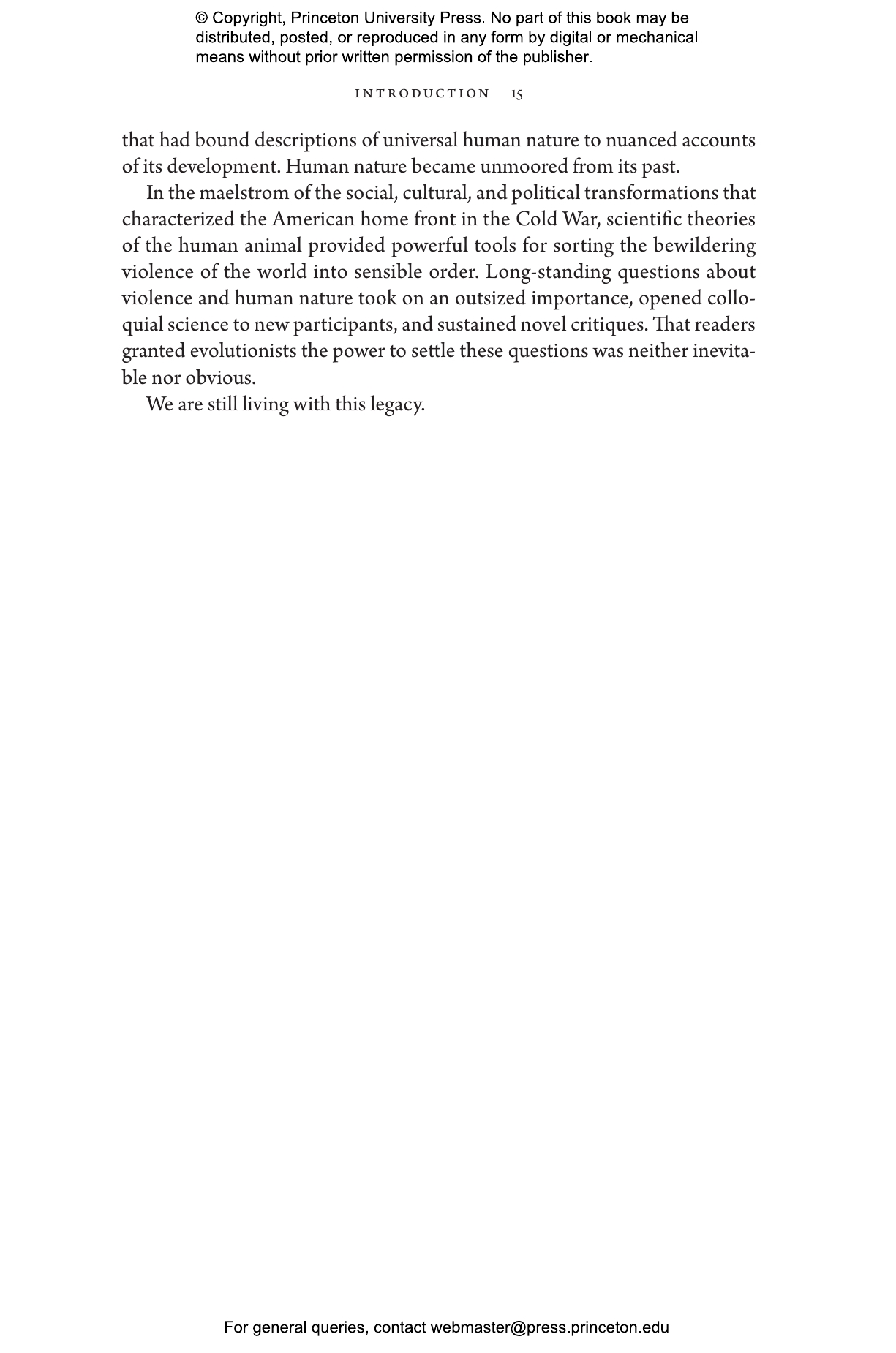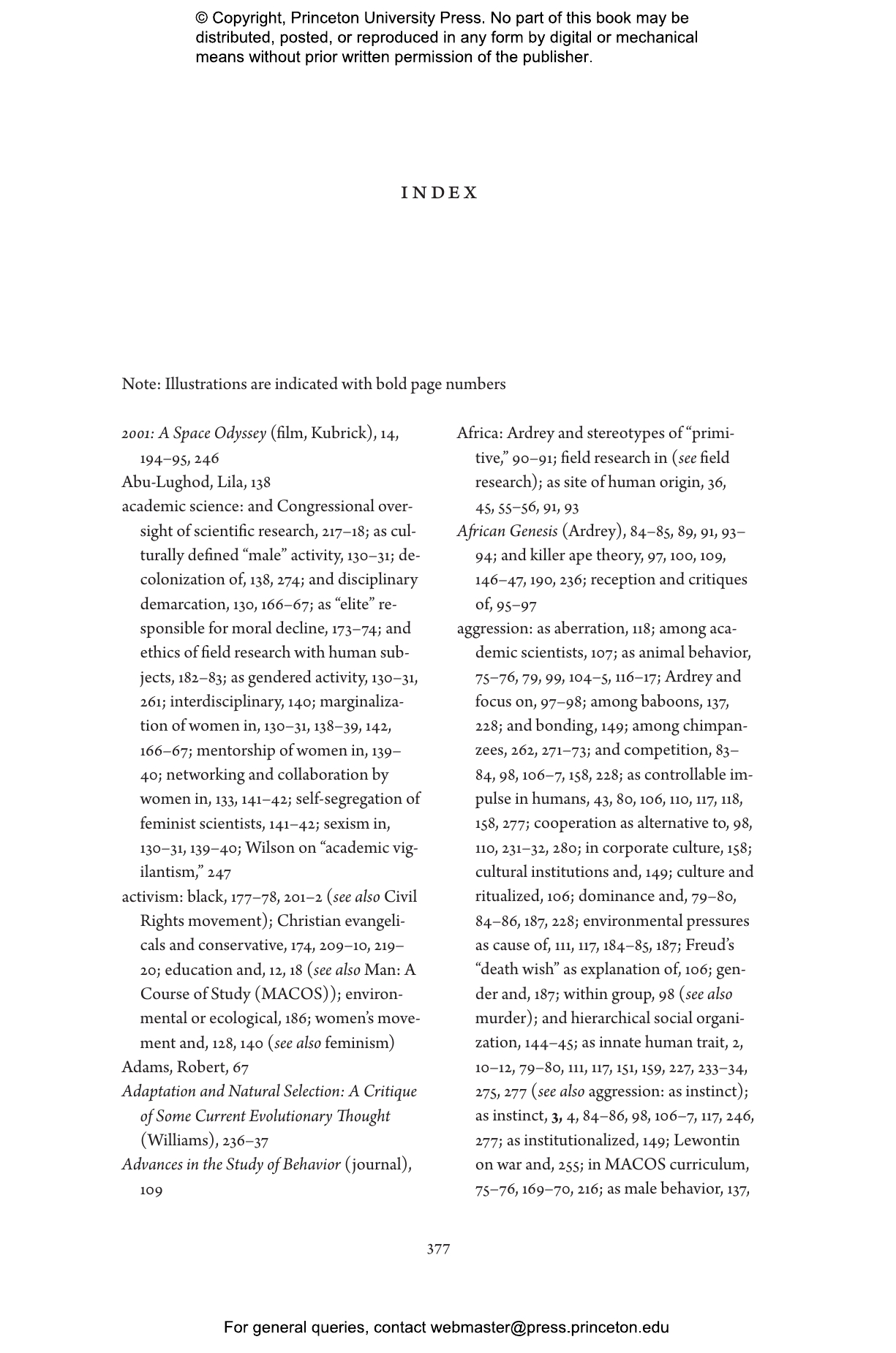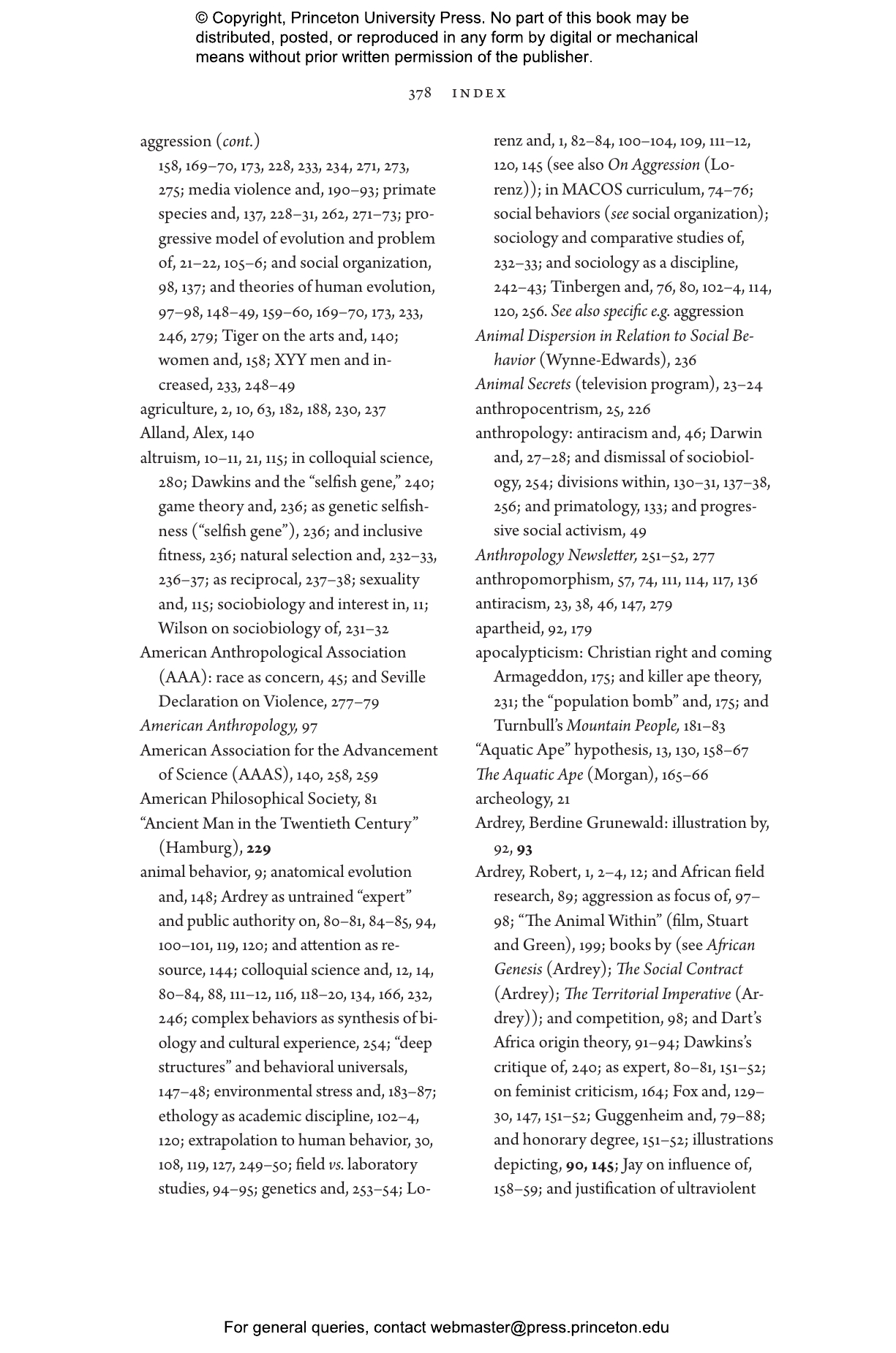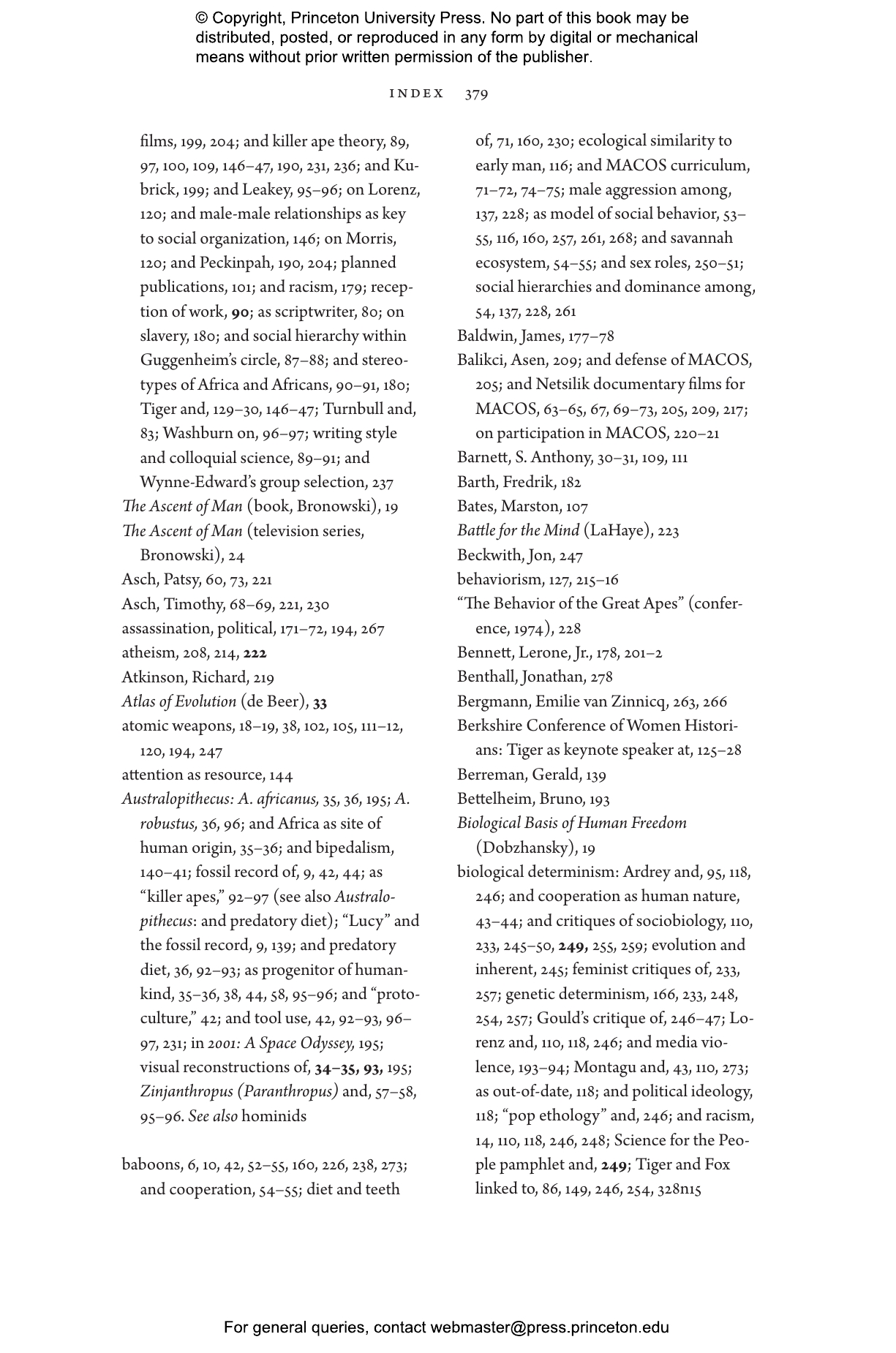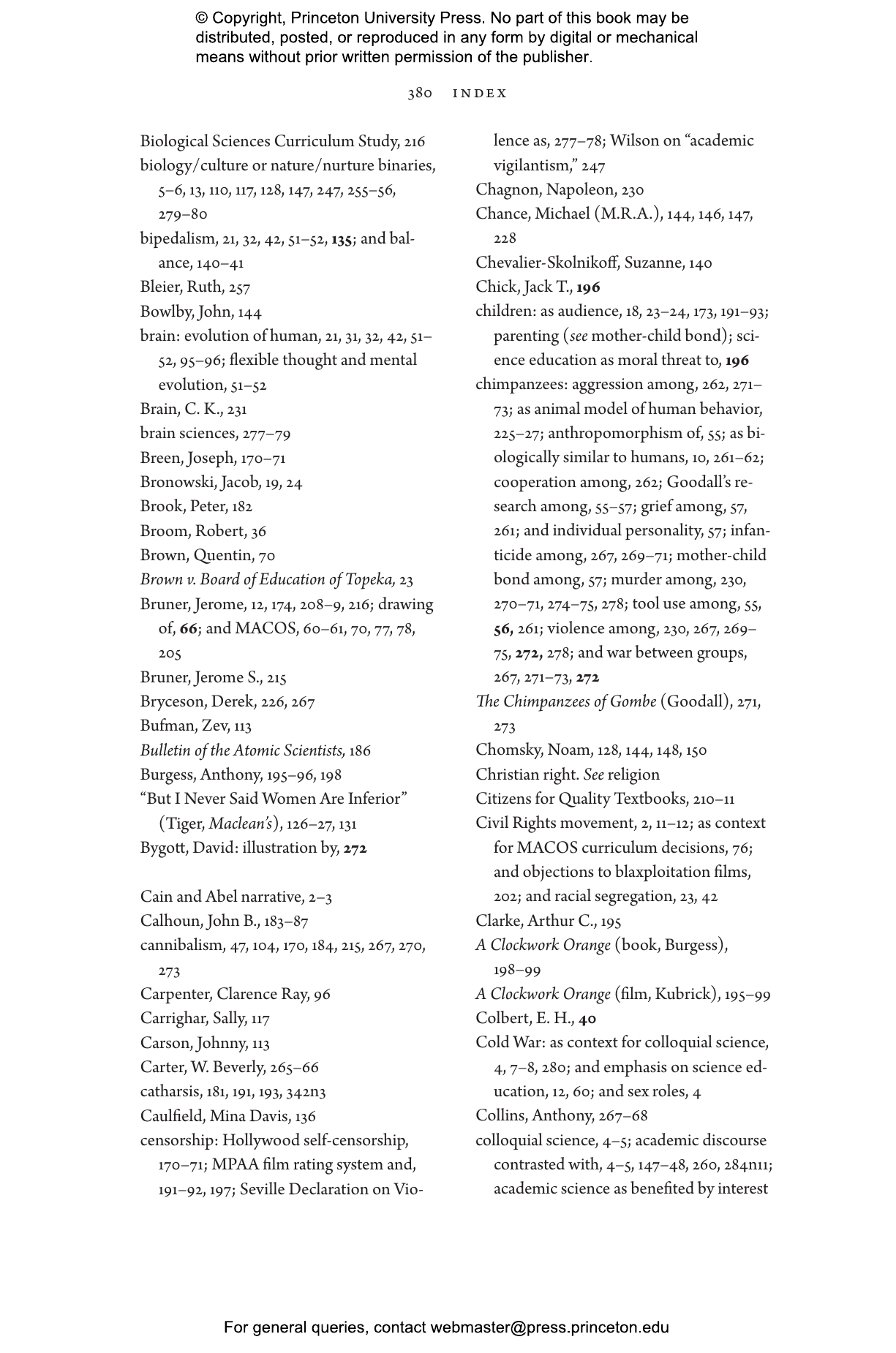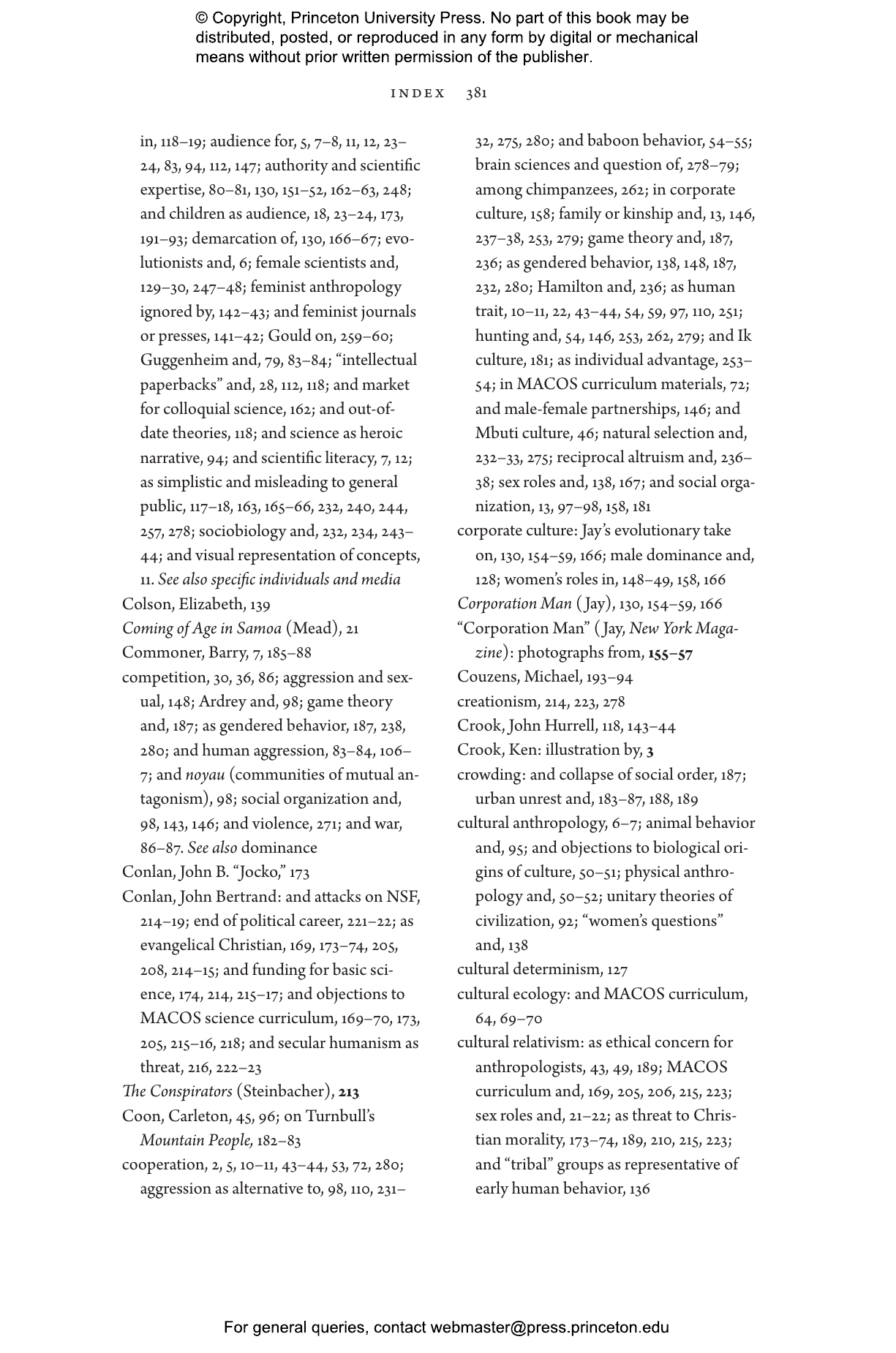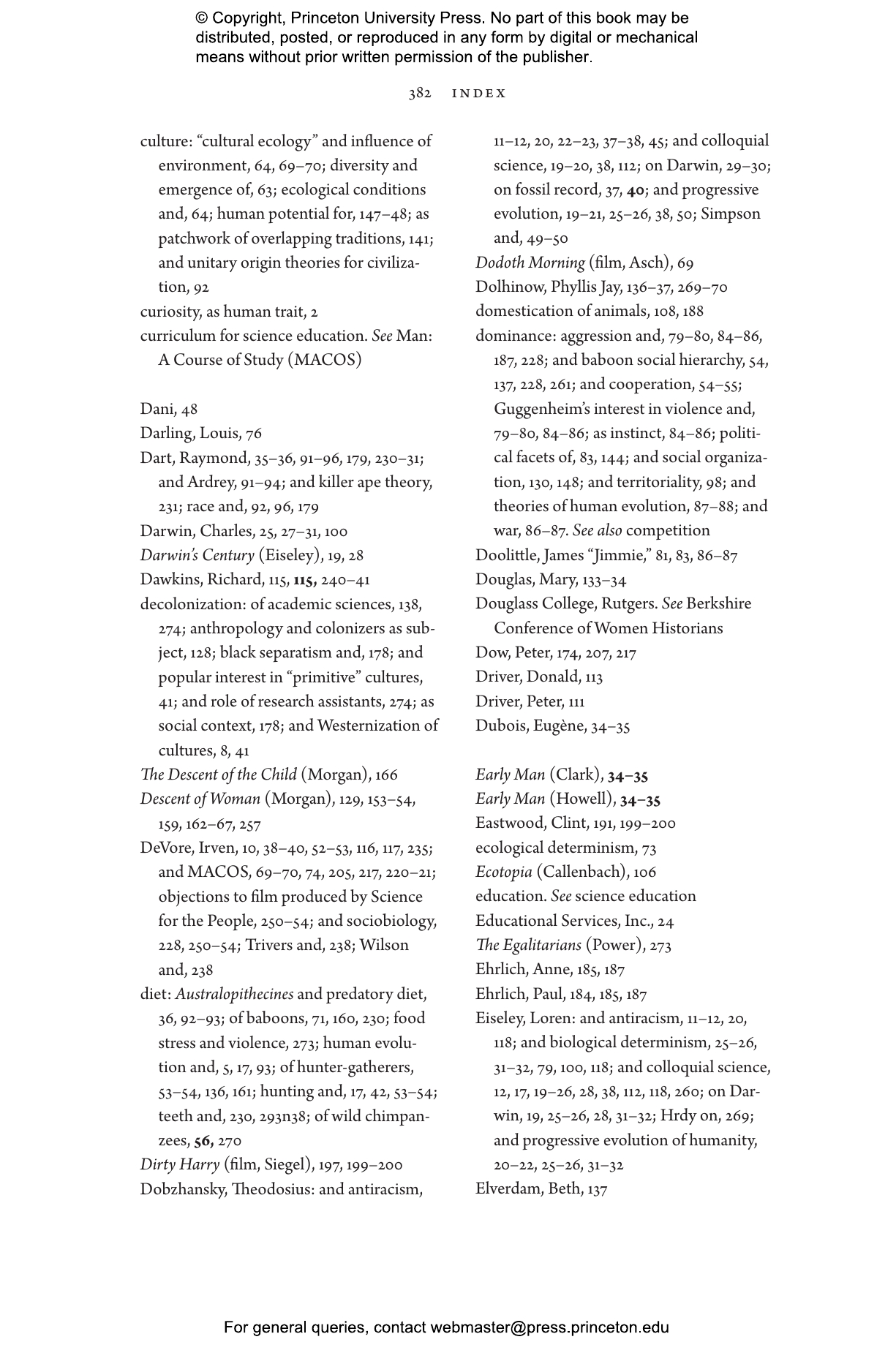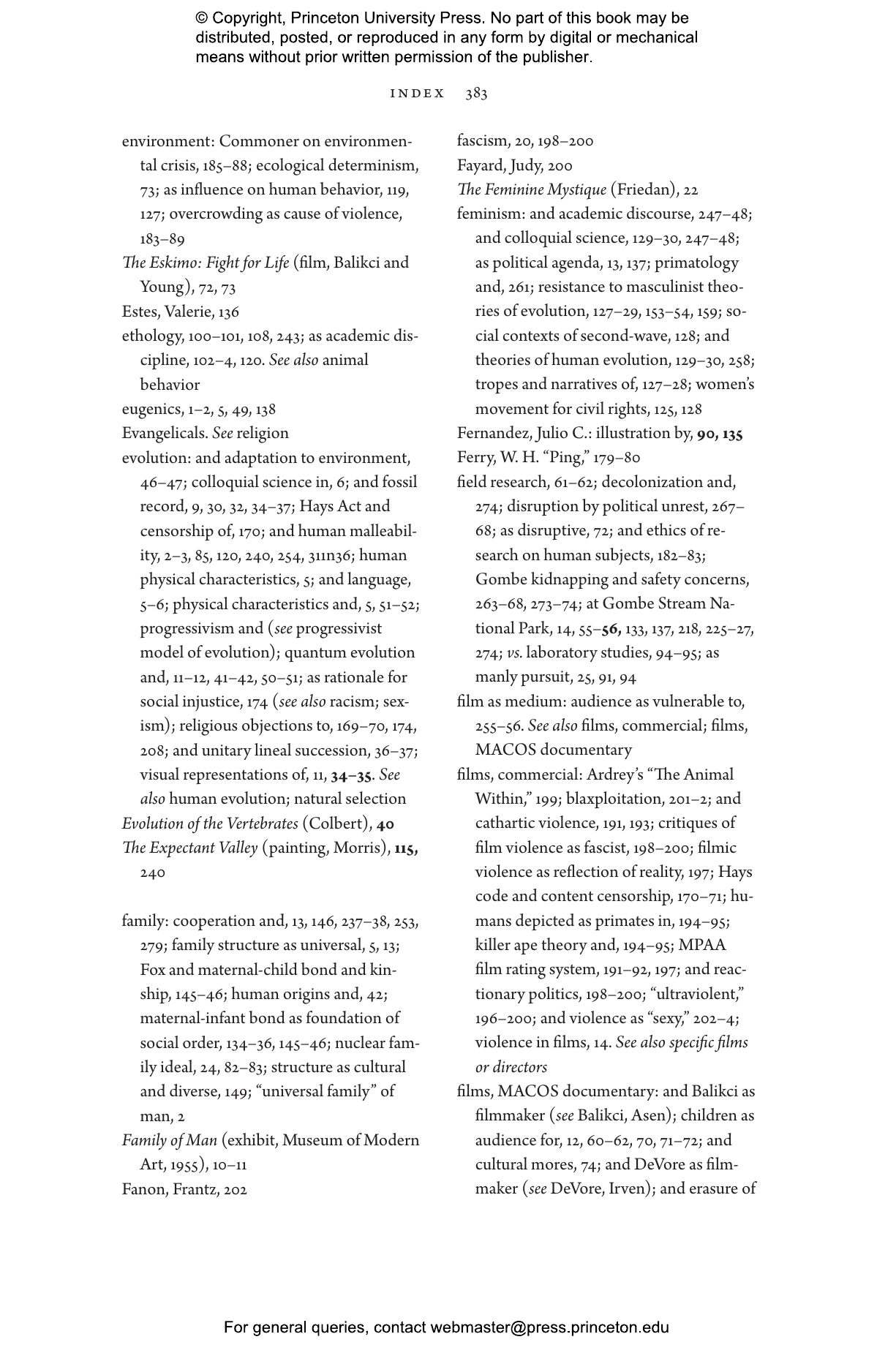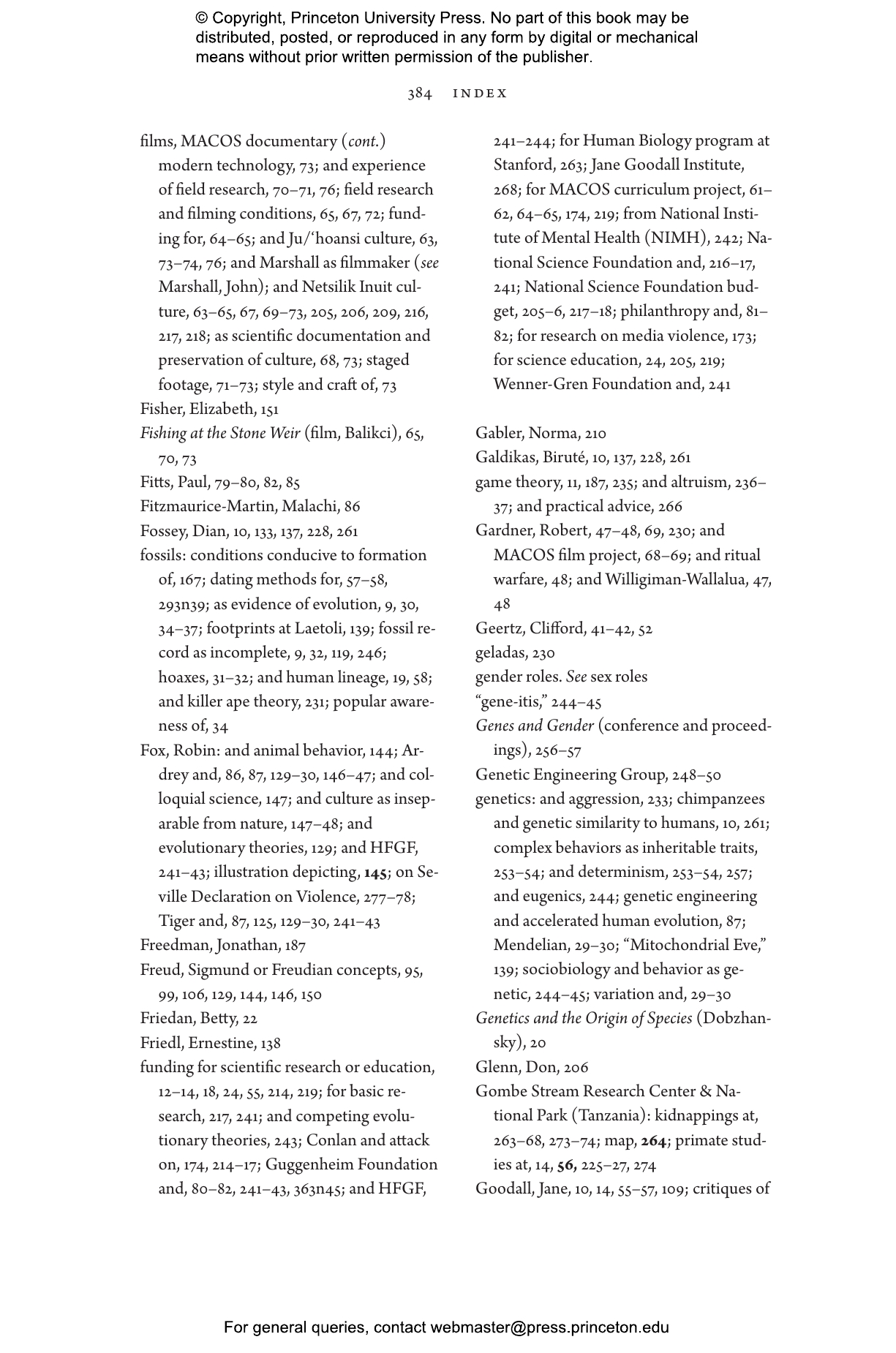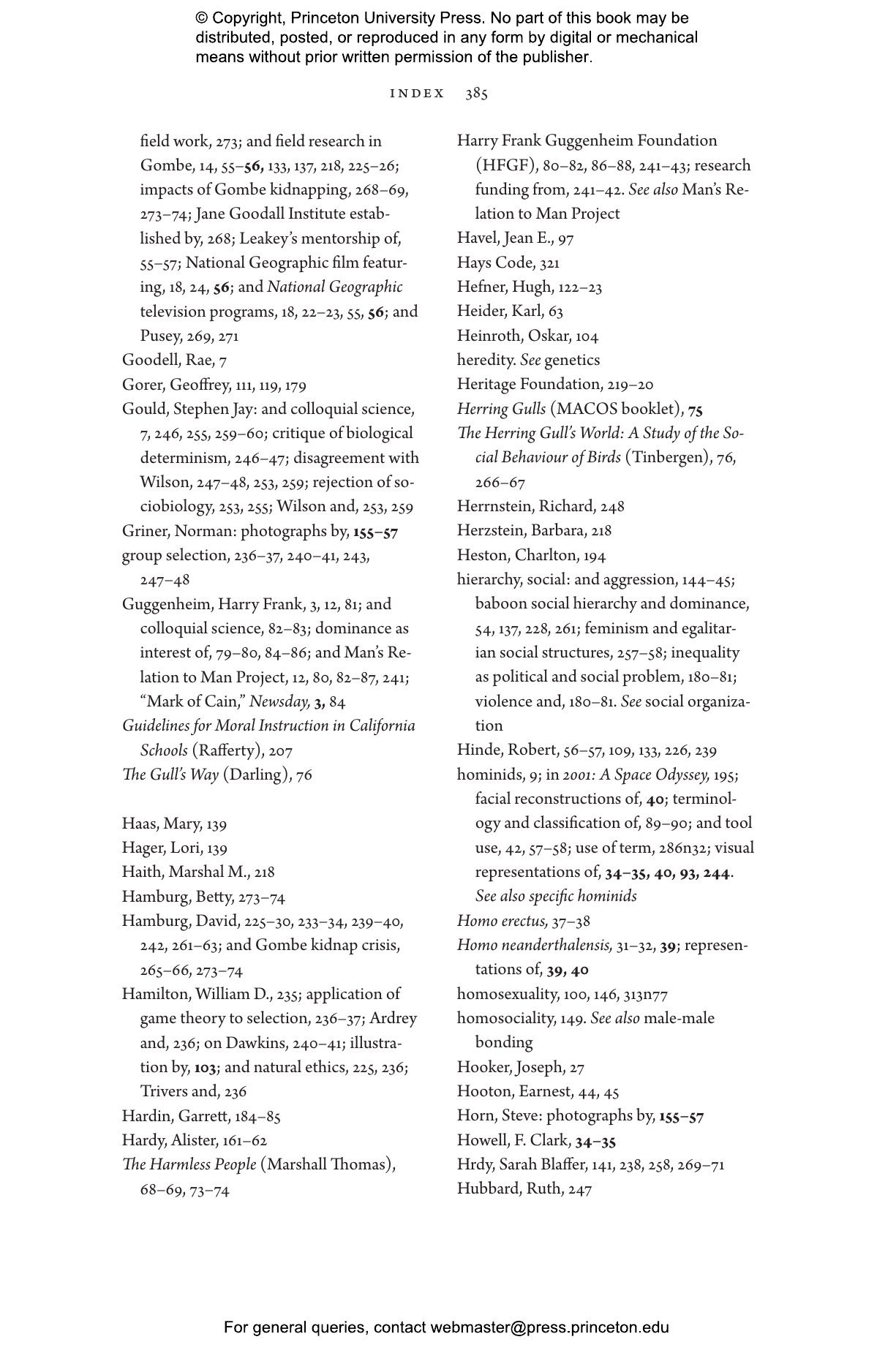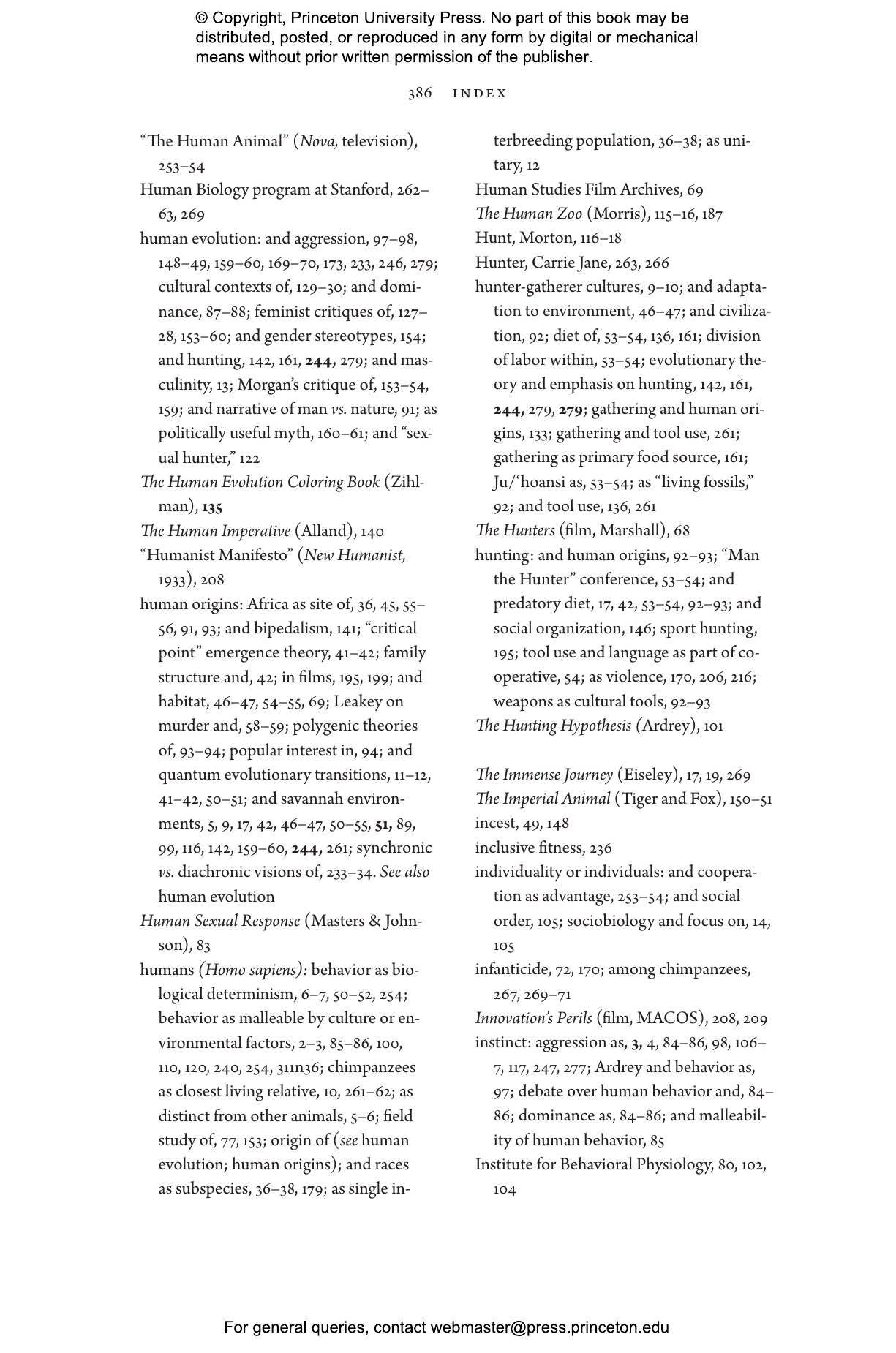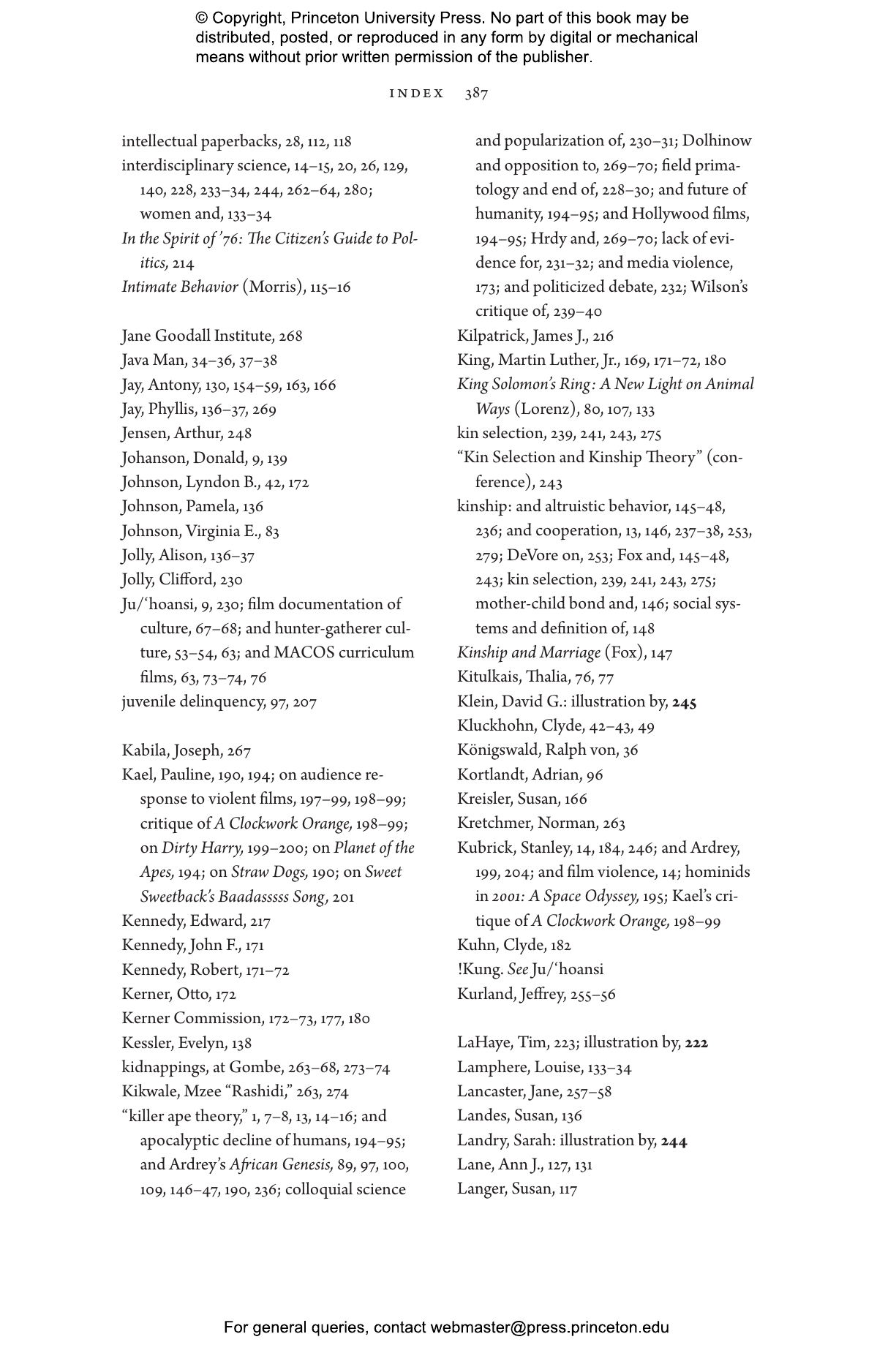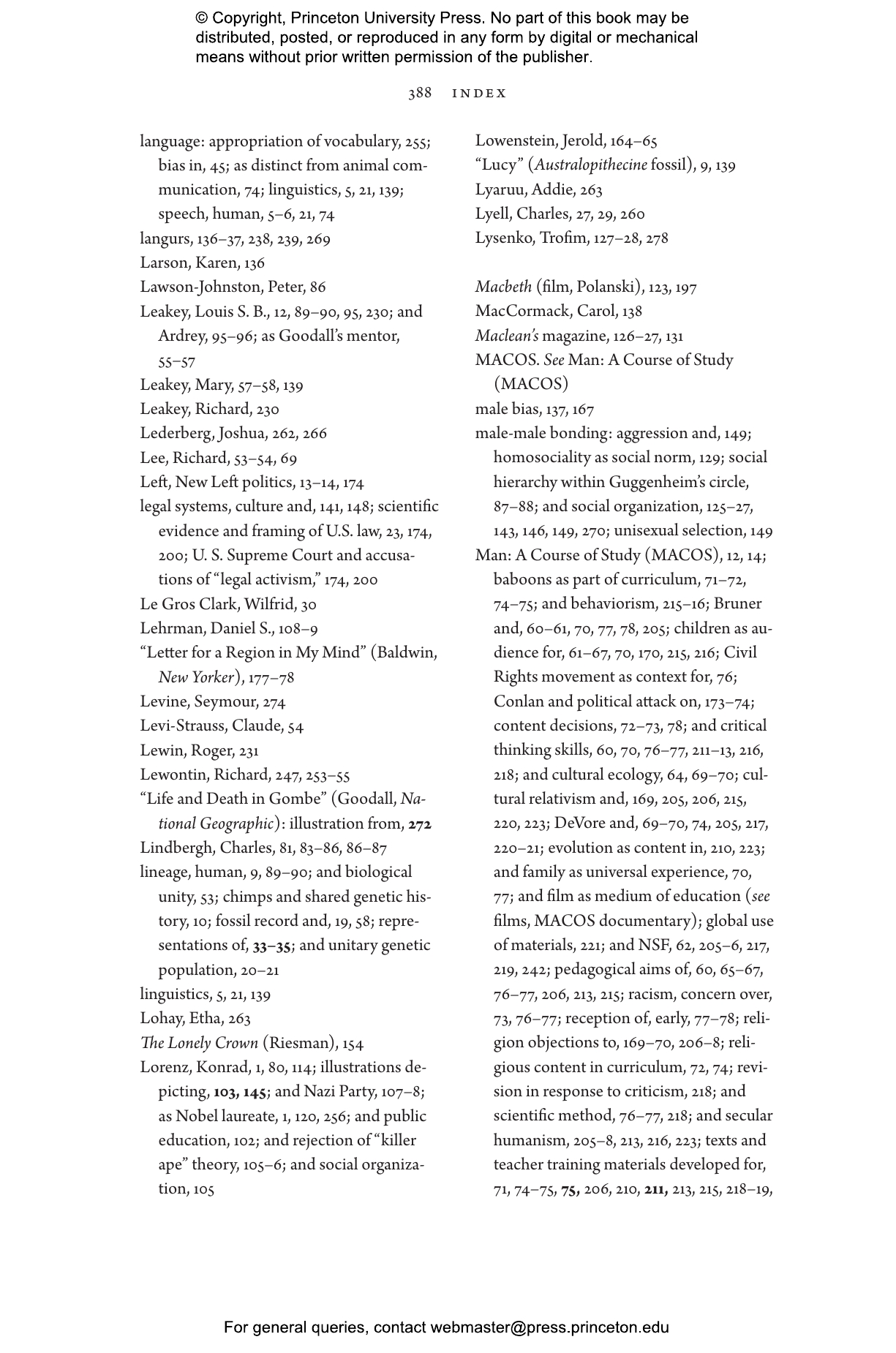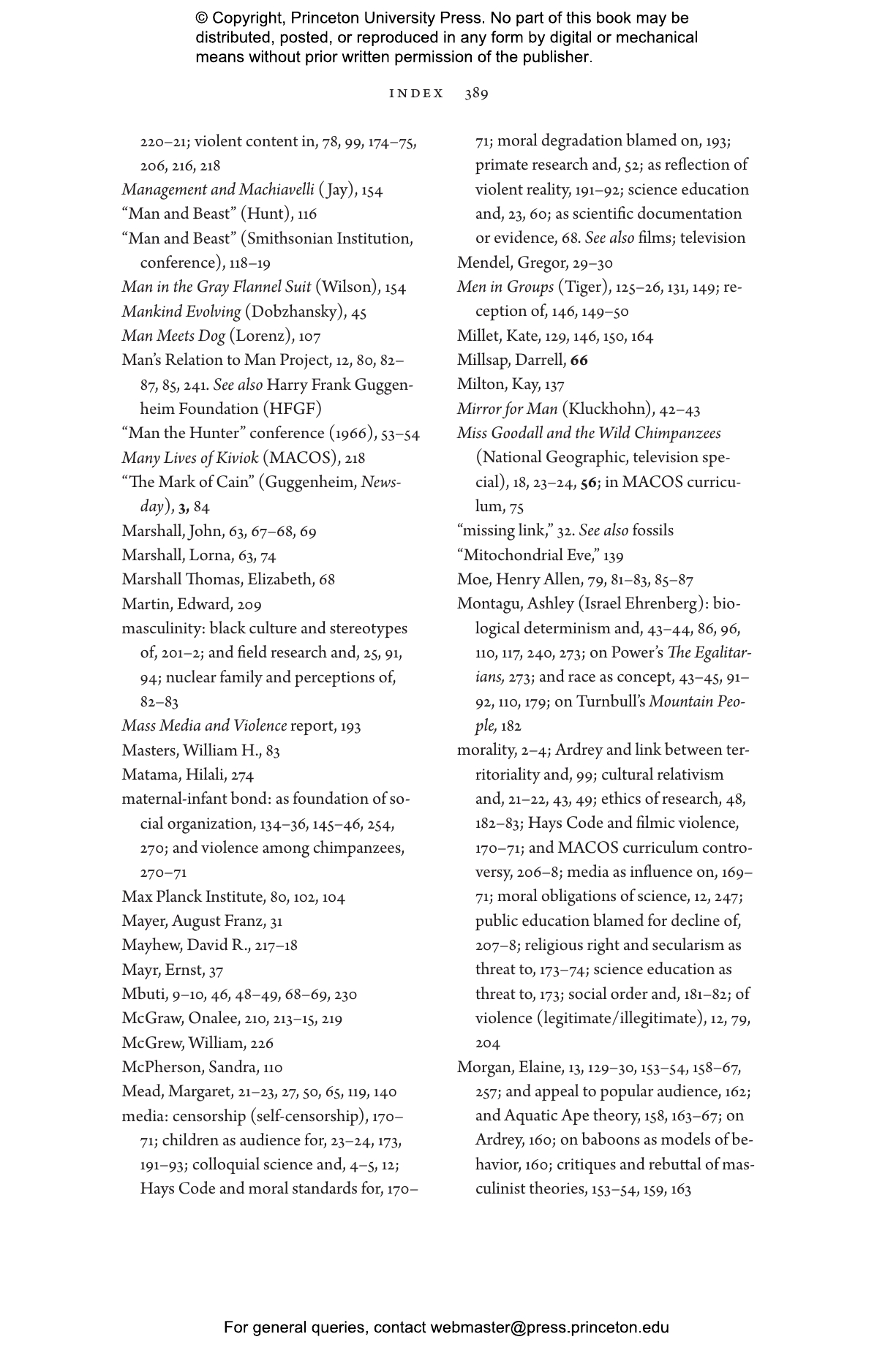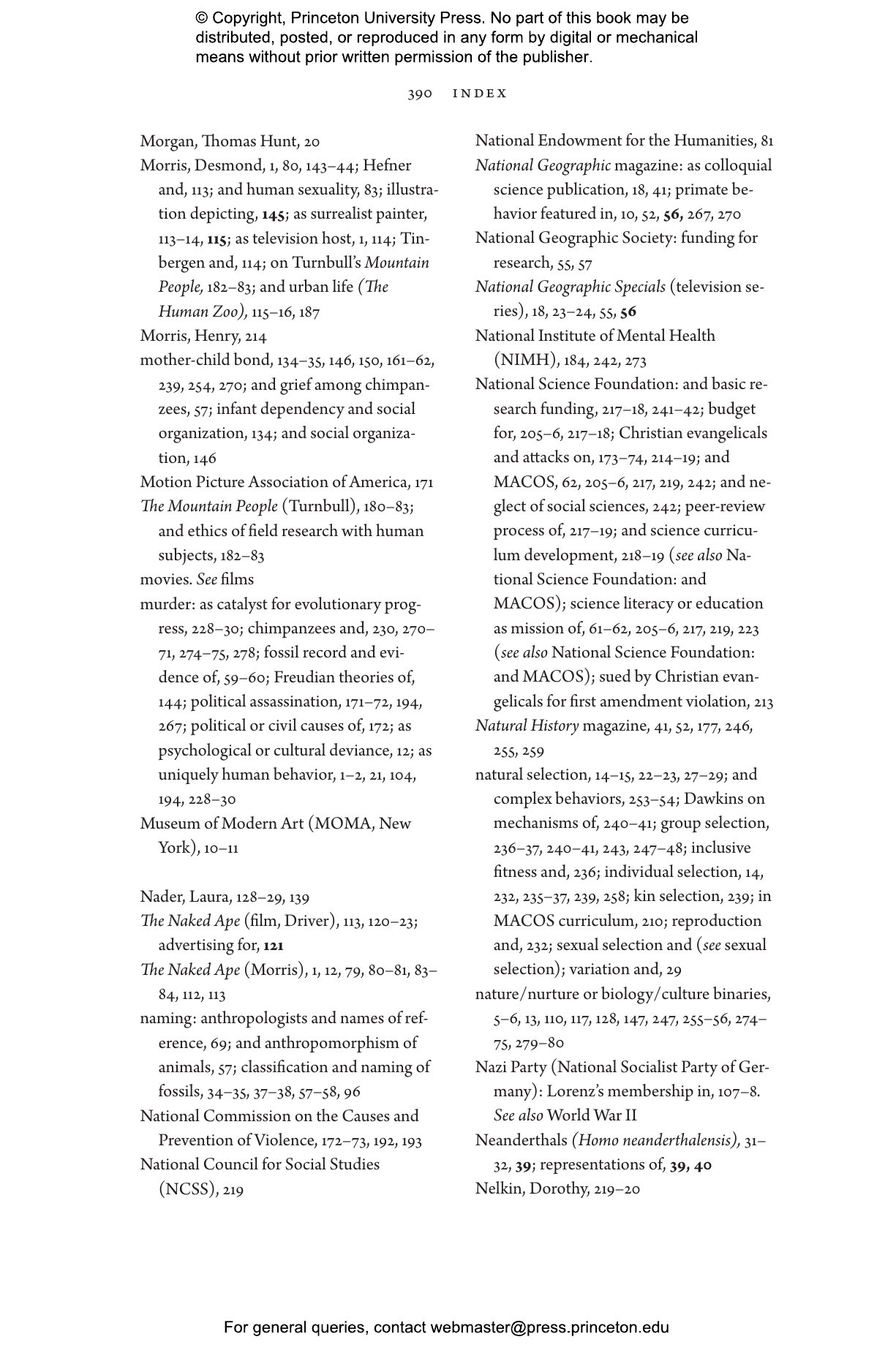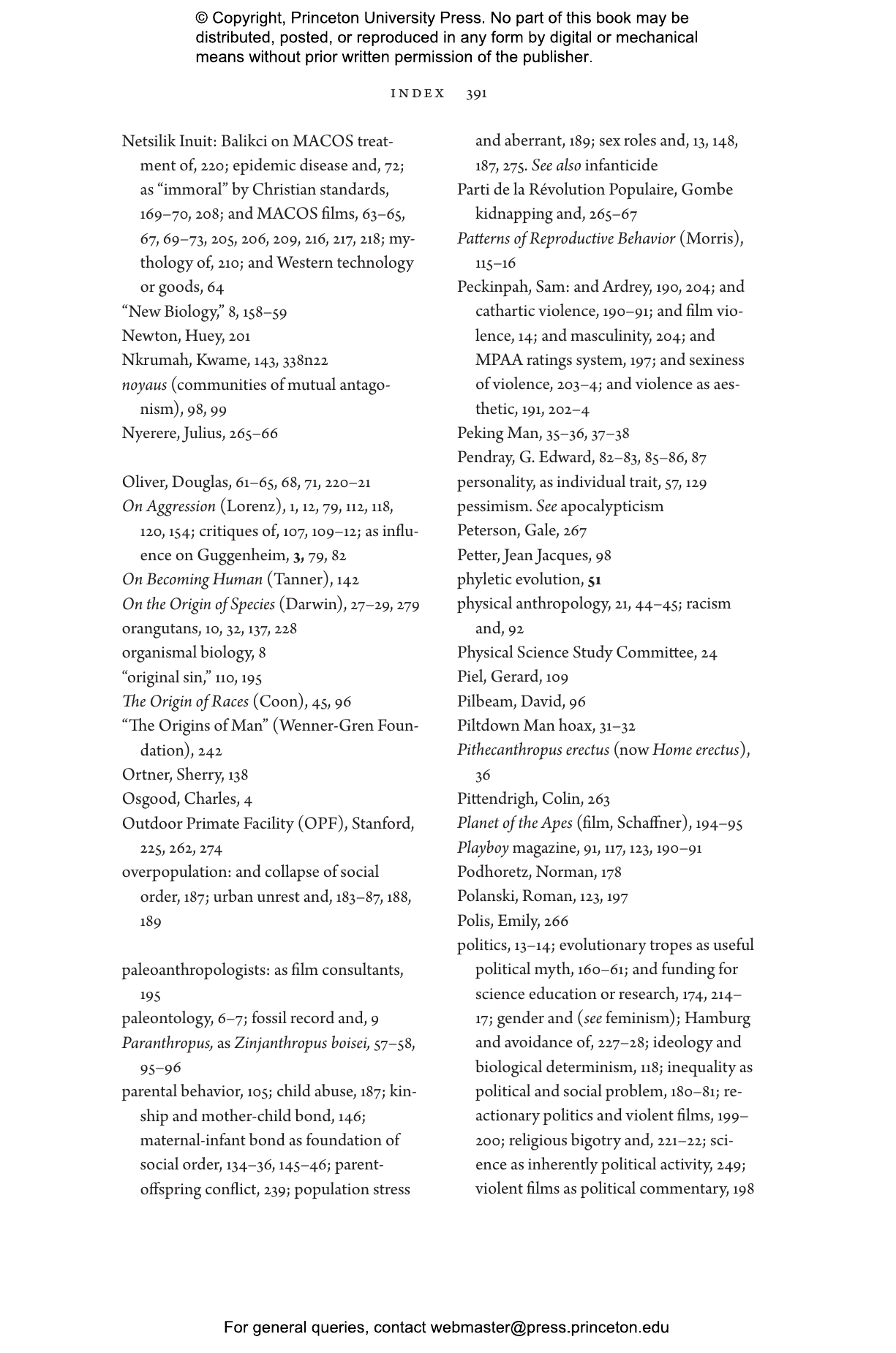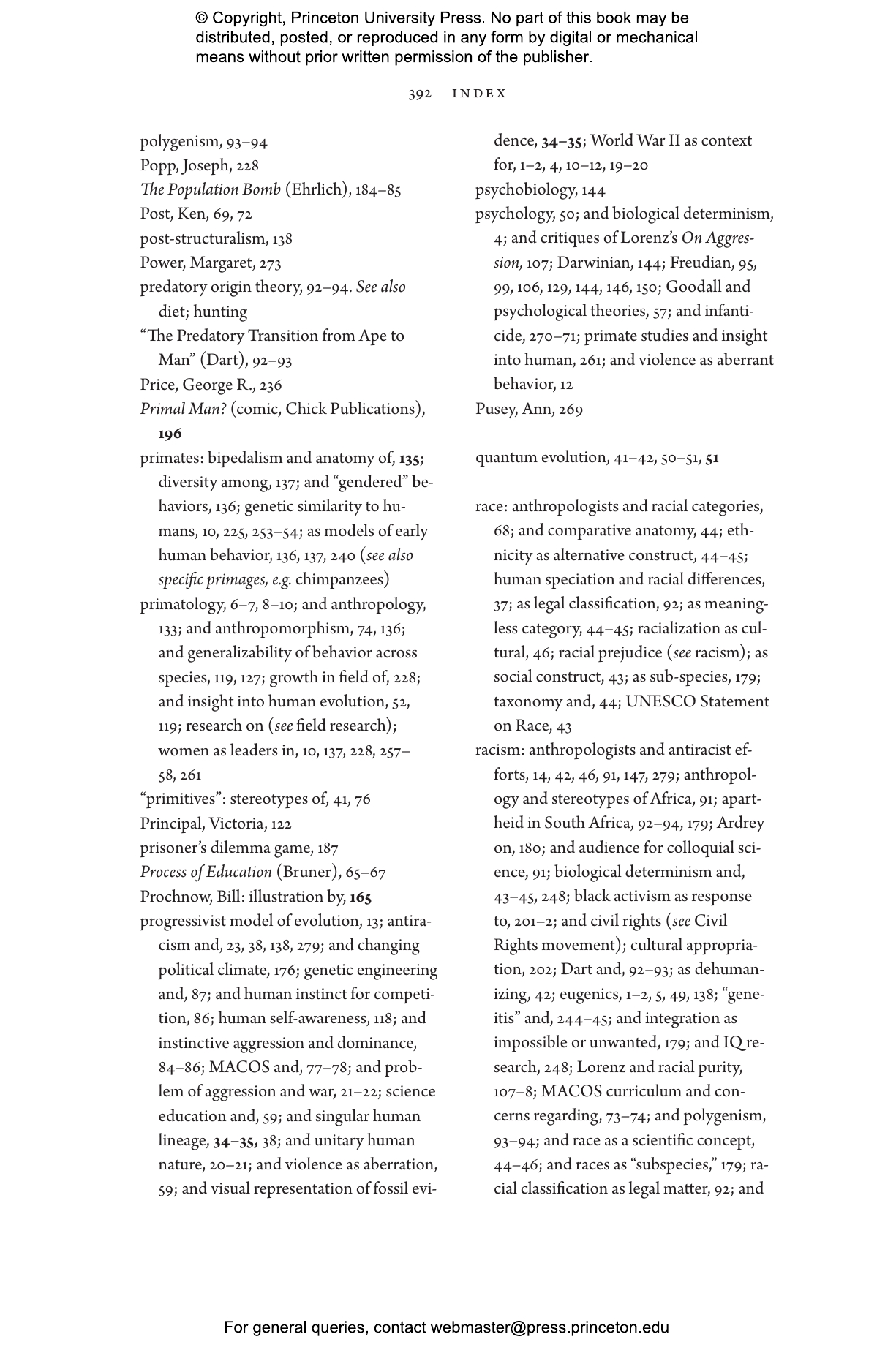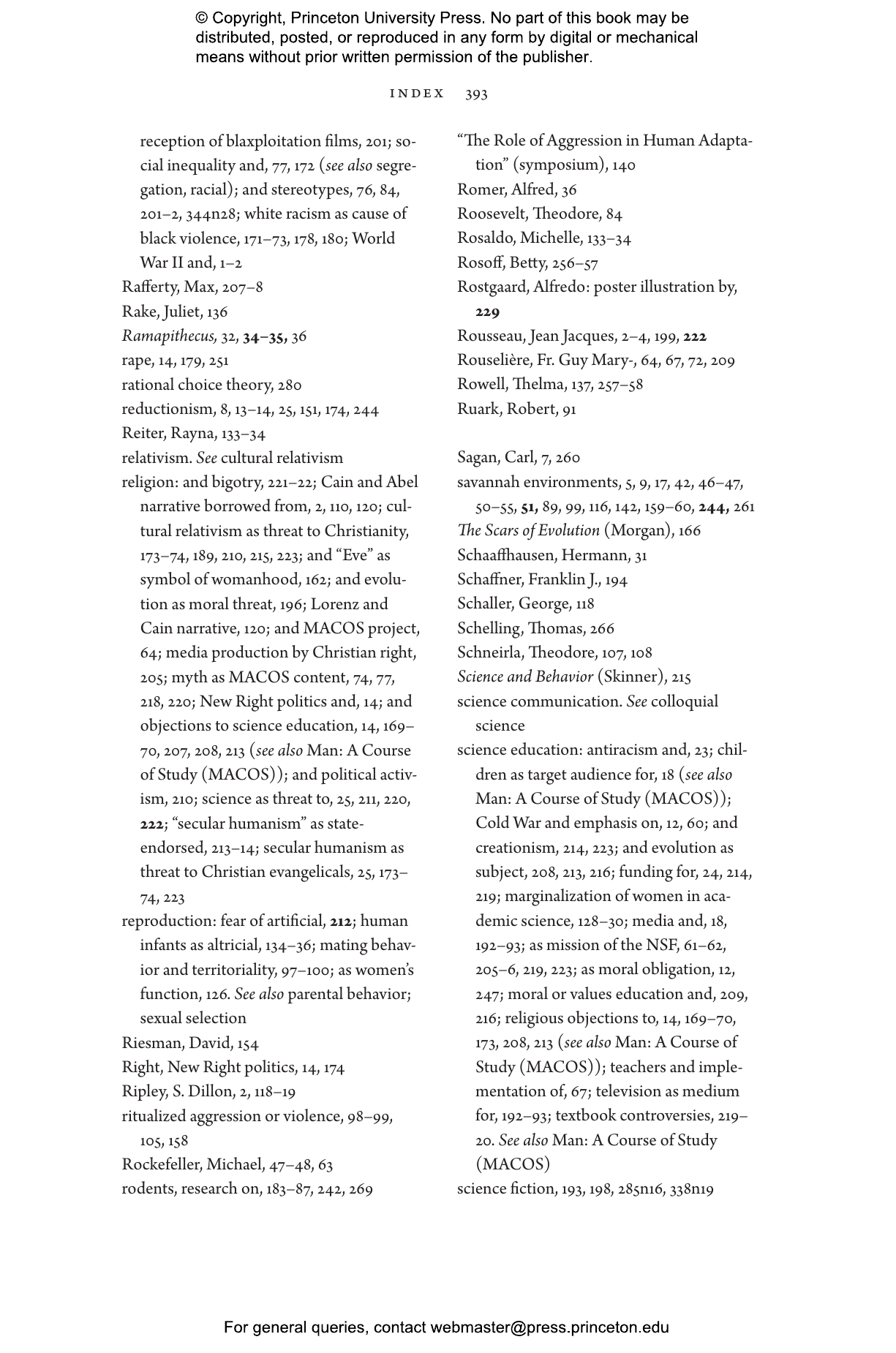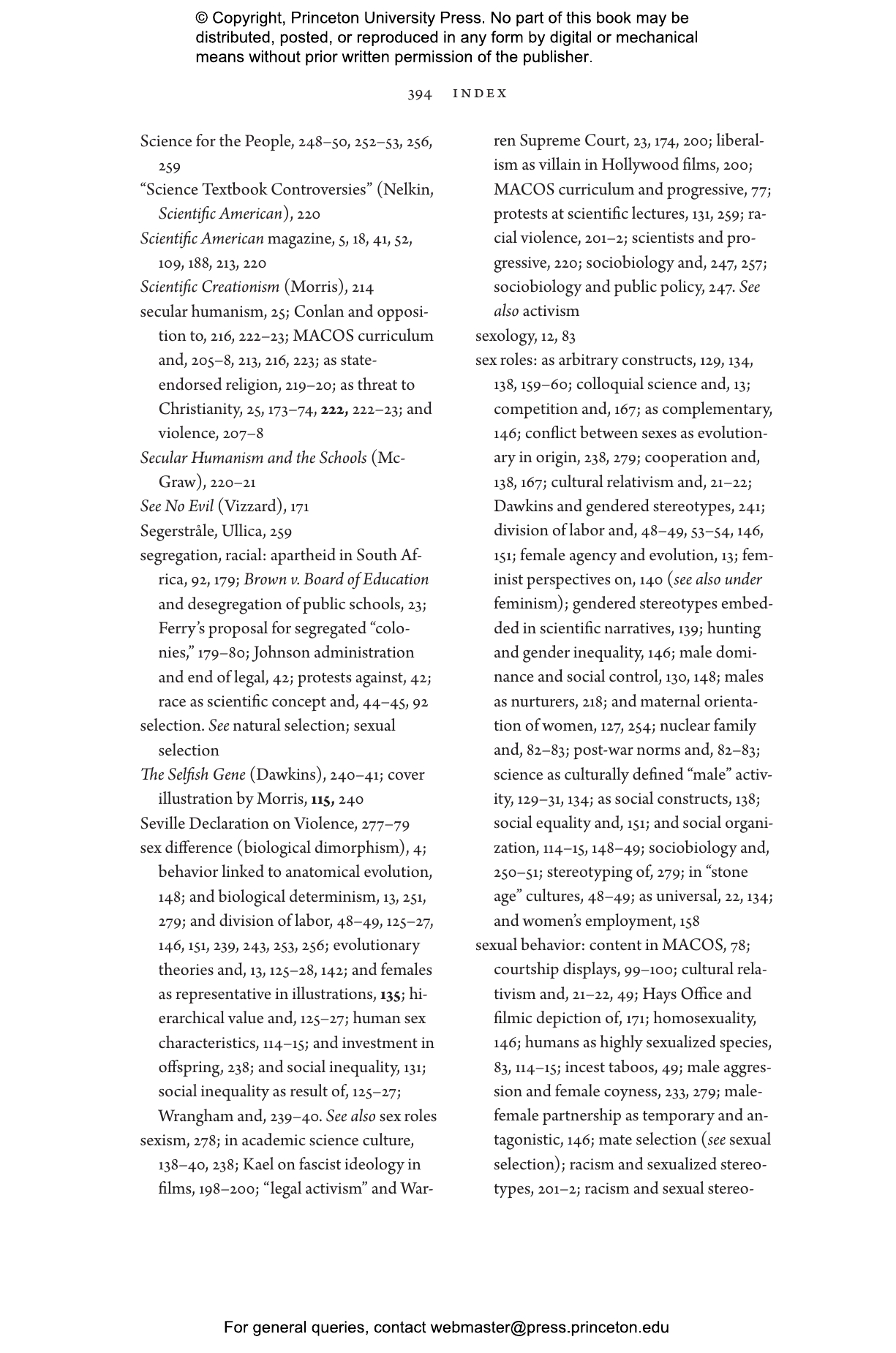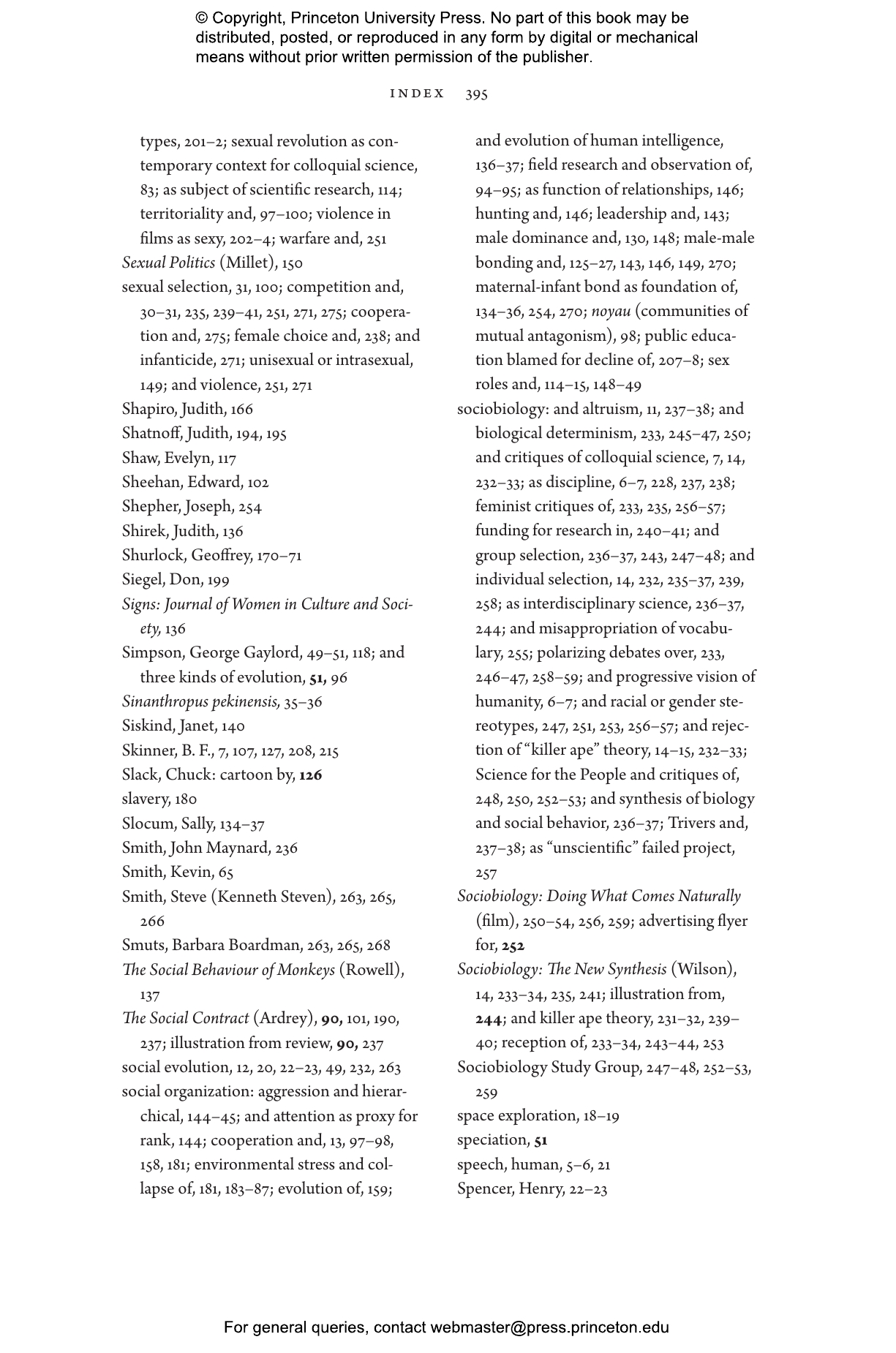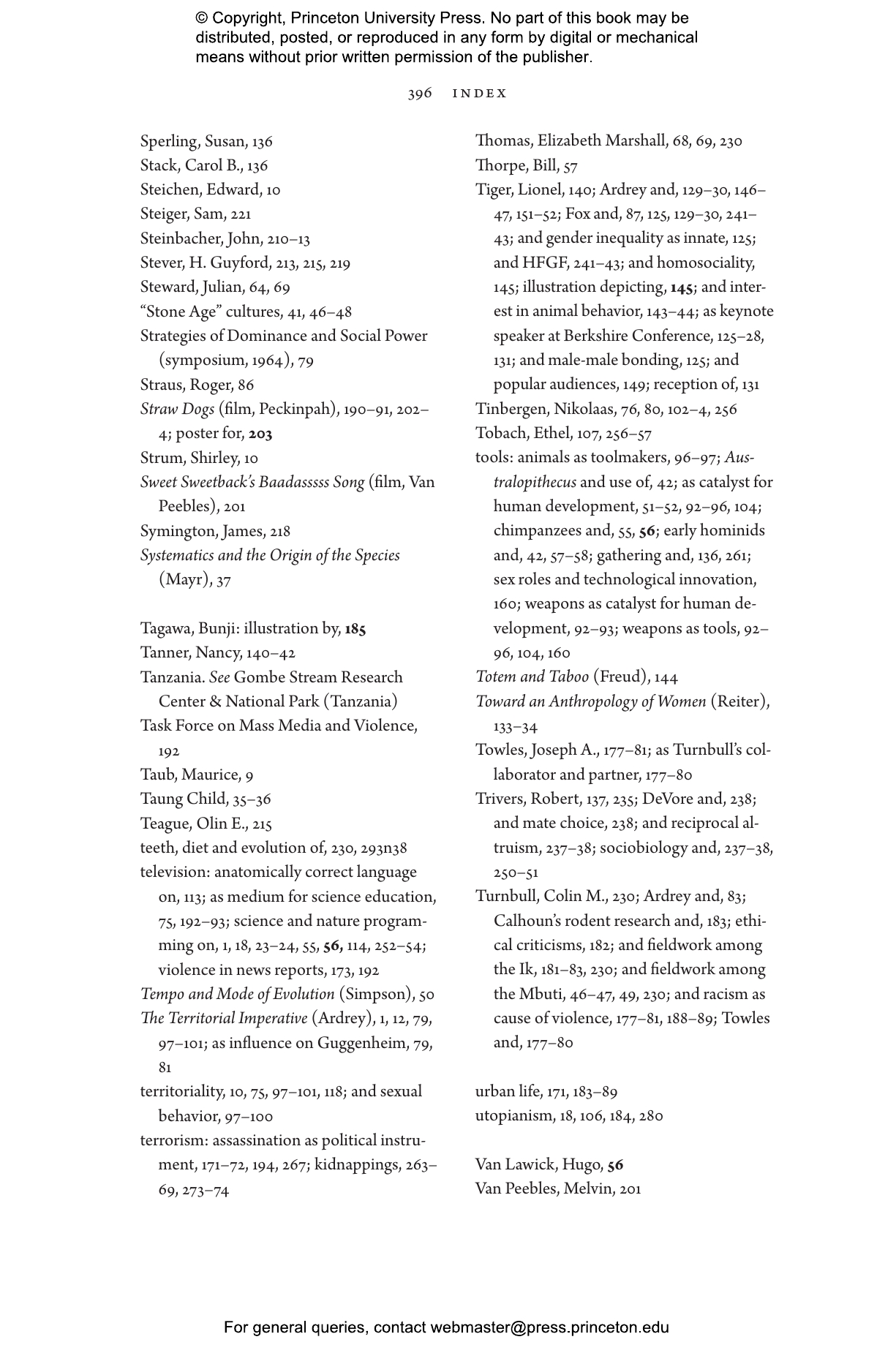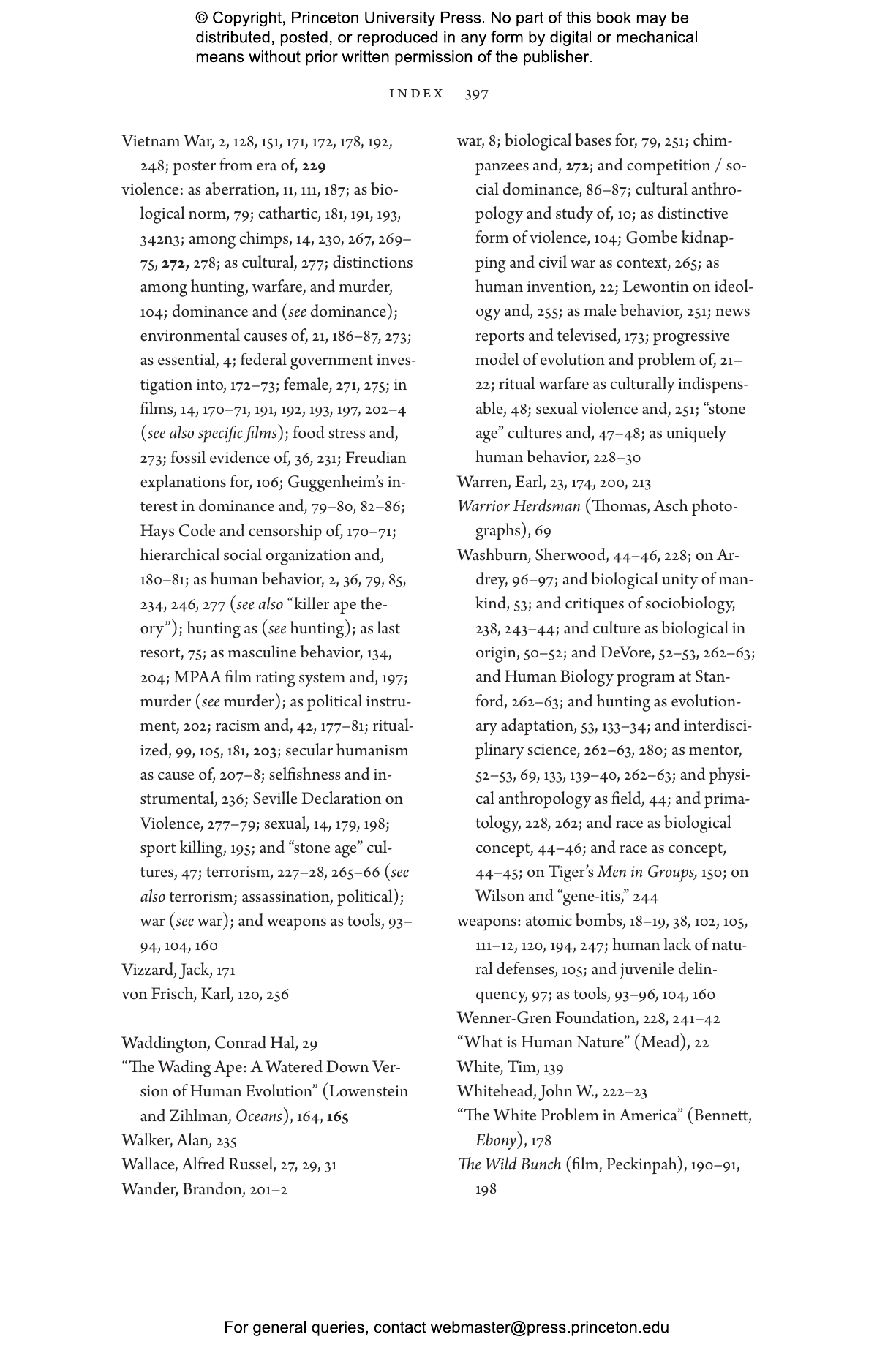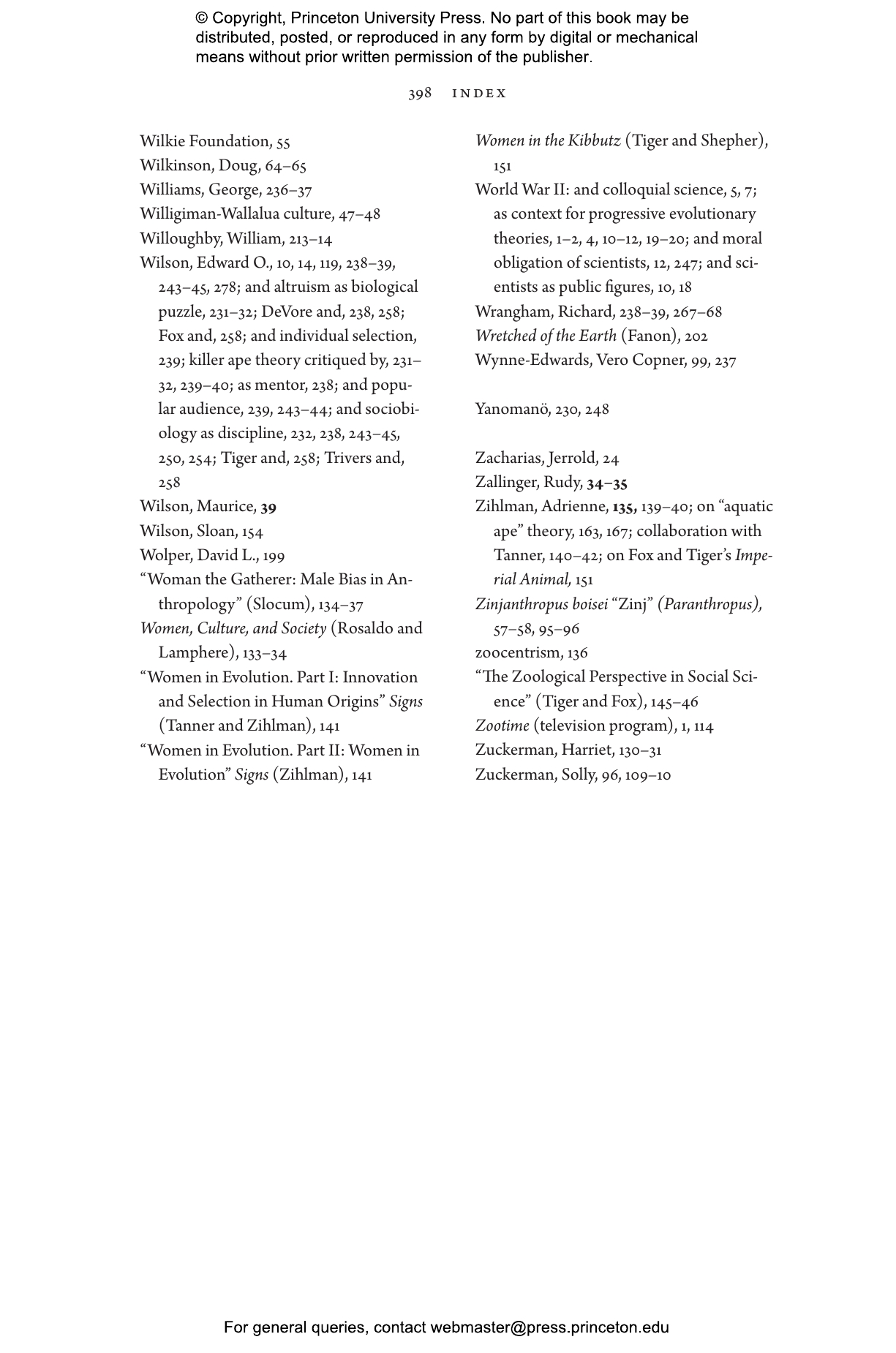After World War II, the question of how to define a universal human nature took on new urgency. Creatures of Cain charts the rise and precipitous fall in Cold War America of a theory that attributed man’s evolutionary success to his unique capacity for murder.
Drawing on a wealth of archival materials and in-depth interviews, Erika Lorraine Milam reveals how the scientists who advanced this “killer ape” theory capitalized on an expanding postwar market in intellectual paperbacks and widespread faith in the power of science to solve humanity’s problems, even to answer the most fundamental questions of human identity. The killer ape theory spread quickly from colloquial science publications to late-night television, classrooms, political debates, and Hollywood films. Behind the scenes, however, scientists were sharply divided, their disagreements centering squarely on questions of race and gender. Then, in the 1970s, the theory unraveled altogether when primatologists discovered that chimpanzees also kill members of their own species. While the discovery brought an end to definitions of human exceptionalism delineated by violence, Milam shows how some evolutionists began to argue for a shared chimpanzee-human history of aggression even as other scientists discredited such theories as sloppy popularizations.
A wide-ranging account of a compelling episode in American science, Creatures of Cain argues that the legacy of the killer ape persists today in the conviction that science can resolve the essential dilemmas of human nature.
Awards and Recognition
- Winner of the Suzanne J. Levinson Prize, History of Science Society
- Shortlisted for the Pickstone Prize, British Society for the History of Science
"A multifaced and original discussion of the curious life of the 'killer ape' theory within American culture."—Marcia Holmes, Times Higher Education
"Coupling her study with research shifting from humankind’s inclination for violence to their more destructive treatment of the environment will reveal that those same factors will continue to remain progressive."—G. Donato, Choice Reviews
"[A] fascinating and very well-documented account of disputes about human nature. . . . A major work like Creatures of Cain: The Hunt for Human Nature in Cold War America informs and intrigues, it raises questions, and points to avenues of more research. [Erika] Milam is to be congratulated."—Michael Ruse, The Quarterly Review of Biology
"Milam’s book . . . is deeply researched as well as lucidly written. . . . Historians will find much to reward them in Creatures of Cain. . . . Historians broadly interested in the social and political landscapes of mid-century U.S. intellectual life will value Milam’s book for its deft interweaving of science, public intellectualism, and American social and political anxieties"—Joy Rohde, American Historical Review
"Milam has made a significant and innovative contribution to the historiography of anthropology . . . . A novel perspective on anthropology’s impact and influence."—Robert Hancock, Journal of the Royal Anthropological Institute
"A tour de force, a historical study that offers a well-researched, meticulous examination of how a diverse community of scientists debated the meaning of human nature in the United States after World War II."—Michal Shapira, Isis
"Creatures of Cain brings to light the ways in which the circulation of knowledge actually took place."—Marianne Sommer, Journal of the History of Biology
"Erika Lorraine Milam’s Creatures of Cain is an exemplary work in the cultural history of modern science. The research is thorough, the material fascinating, the writing lucid and, at times, gripping."—Alex Aylward, Birkhauser (N.T.M)
"Creatures of Cain is likely to become a classic in history of science studies. The work is beautifully written and has layers of rich detail, much of which could be mined for gaining insights on contemporary debates."—Roger Chapman, Cercles
"While the historian of anthropology/biology is likely to be acquainted with the general outline of the debates that scientists also carried into the public, it is in such moments of widening the discussion even further that Milam, thanks to her history of knowledge approach, is at her best. . . . Creatures of Cain brings to light the ways in which the circulation of knowledge actually took place."—Marianne Sommer, Journal of the History of Biology
“Why have biologists come to characterize human behavior as innately violent? In this exciting book exploring the cultural impact of science, Erika Lorraine Milam shows how postwar authors increasingly came to regard human beings as little more than cavemen with a territorial imperative—and reveals momentous shifts in twentieth-century American culture.”—Janet Browne, author of Charles Darwin: A Biography and editor of The Quotable Darwin
“Erika Lorraine Milam’s magisterial account of the sciences of human nature in Cold War America weaves together ideas and politics, vivid personalities and scientific evidence, mass-media hype and arduous fieldwork, educational reform and daring movies, all against the background of the tumultuous decades between Sputnik and Watergate. It is a very human story about trying to understand what it means to be human. It is also a whopping good read."—Lorraine Daston, director, Max Planck Institute for the History of Science
“In this brilliantly creative and eye-opening book, Erika Lorraine Milam shows how the Cold War radically transformed popular and scientific attitudes towards human nature. Though eugenics went out of fashion after World War II, new theories of innate human aggression came to rationalize and simplify a violent world—a development with wide-ranging ramifications at the time as well as disturbing legacies and parallels today. Milam teaches once again that appeals to nature always turn out to be politics by other means.”—Samuel Moyn, Yale University
“Milam provides a new understanding of how scientists and their publics negotiate knowledge production on topics of significant political meaning. Creatures of Cain is an important book, especially in our current political environment.”—Jamie Cohen-Cole, author of The Open Mind: Cold War Politics and the Sciences of Human Nature
“Milam’s fine book explores the renewed fascination in postwar America with the roots of human aggression and so makes an important contribution not only to the history of science but also to our understanding of the broader American postwar context.”—Hunter Heyck, author of Herbert A. Simon: The Bounds of Reason in Modern America and Age of System
